"I Have a Dream"
August 28, 1963
Martin Luther King’s famous “I Have a Dream” speech, delivered at the 28 August 1963 March on Washington for Jobs and Freedom , synthesized portions of his previous sermons and speeches, with selected statements by other prominent public figures.
King had been drawing on material he used in the “I Have a Dream” speech in his other speeches and sermons for many years. The finale of King’s April 1957 address, “A Realistic Look at the Question of Progress in the Area of Race Relations,” envisioned a “new world,” quoted the song “My Country ’Tis of Thee,” and proclaimed that he had heard “a powerful orator say not so long ago, that … Freedom must ring from every mountain side…. Yes, let it ring from the snow-capped Rockies of Colorado…. Let it ring from Stone Mountain of Georgia. Let it ring from Lookout Mountain of Tennessee. Let it ring from every mountain and hill of Alabama. From every mountain side, let freedom ring” ( Papers 4:178–179 ).
In King’s 1959 sermon “Unfulfilled Hopes,” he describes the life of the apostle Paul as one of “unfulfilled hopes and shattered dreams” ( Papers 6:360 ). He notes that suffering as intense as Paul’s “might make you stronger and bring you closer to the Almighty God,” alluding to a concept he later summarized in “I Have a Dream”: “unearned suffering is redemptive” ( Papers 6:366 ; King, “I Have a Dream,” 84).
In September 1960, King began giving speeches referring directly to the American Dream. In a speech given that month at a conference of the North Carolina branches of the National Association for the Advancement of Colored People , King referred to the unexecuted clauses of the preamble to the U.S. Constitution and spoke of America as “a dream yet unfulfilled” ( Papers 5:508 ). He advised the crowd that “we must be sure that our struggle is conducted on the highest level of dignity and discipline” and reminded them not to “drink the poisonous wine of hate,” but to use the “way of nonviolence” when taking “direct action” against oppression ( Papers 5:510 ).
King continued to give versions of this speech throughout 1961 and 1962, then calling it “The American Dream.” Two months before the March on Washington, King stood before a throng of 150,000 people at Cobo Hall in Detroit to expound upon making “the American Dream a reality” (King, Address at Freedom Rally, 70). King repeatedly exclaimed, “I have a dream this afternoon” (King, Address at Freedom Rally, 71). He articulated the words of the prophets Amos and Isaiah, declaring that “justice will roll down like waters, and righteousness like a mighty stream,” for “every valley shall be exalted, and every hill and mountain shall be made low” (King, Address at Freedom Rally, 72). As he had done numerous times in the previous two years, King concluded his message imagining the day “when all of God’s children, black men and white men, Jews and Gentiles, Protestants and Catholics, will be able to join hands and sing with the Negroes in the spiritual of old: Free at last! Free at last! Thank God Almighty, we are free at last!” (King, Address at Freedom Rally , 73).
As King and his advisors prepared his speech for the conclusion of the 1963 march, he solicited suggestions for the text. Clarence Jones offered a metaphor for the unfulfilled promise of constitutional rights for African Americans, which King incorporated into the final text: “America has defaulted on this promissory note insofar as her citizens of color are concerned” (King, “I Have a Dream,” 82). Several other drafts and suggestions were posed. References to Abraham Lincoln and the Emancipation Proclamation were sustained throughout the countless revisions. King recalled that he did not finish the complete text of the speech until 3:30 A.M. on the morning of 28 August.
Later that day, King stood at the podium overlooking the gathering. Although a typescript version of the speech was made available to the press on the morning of the march, King did not merely read his prepared remarks. He later recalled: “I started out reading the speech, and I read it down to a point … the audience response was wonderful that day…. And all of a sudden this thing came to me that … I’d used many times before.... ‘I have a dream.’ And I just felt that I wanted to use it here … I used it, and at that point I just turned aside from the manuscript altogether. I didn’t come back to it” (King, 29 November 1963).
The following day in the New York Times, James Reston wrote: “Dr. King touched all the themes of the day, only better than anybody else. He was full of the symbolism of Lincoln and Gandhi, and the cadences of the Bible. He was both militant and sad, and he sent the crowd away feeling that the long journey had been worthwhile” (Reston, “‘I Have a Dream …’”).
Carey to King, 7 June 1955, in Papers 2:560–561.
Hansen, The Dream, 2003.
King, Address at the Freedom Rally in Cobo Hall, in A Call to Conscience , ed. Carson and Shepard, 2001.
King, “I Have a Dream,” Address Delivered at the March on Washington for Jobs and Freedom, in A Call to Conscience , ed. Carson and Shepard, 2001.
King, Interview by Donald H. Smith, 29 November 1963, DHSTR-WHi .
King, “The Negro and the American Dream,” Excerpt from Address at the Annual Freedom Mass Meeting of the North Carolina State Conference of Branches of the NAACP, 25 September 1960, in Papers 5:508–511.
King, “A Realistic Look at the Question of Progress in the Area of Race Relations,” Address Delivered at St. Louis Freedom Rally, 10 April 1957, in Papers 4:167–179.
King, Unfulfilled Hopes, 5 April 1959, in Papers 6:359–367.
James Reston, “‘I Have a Dream…’: Peroration by Dr. King Sums Up a Day the Capital Will Remember,” New York Times , 29 August 1963.
- Skip to main content
- Keyboard shortcuts for audio player

Read Martin Luther King Jr.'s 'I Have a Dream' speech in its entirety

Civil rights leader Martin Luther King Jr. addresses the crowd at the Lincoln Memorial in Washington, D.C., where he gave his "I Have a Dream" speech on Aug. 28, 1963, as part of the March on Washington. AFP via Getty Images hide caption
Civil rights leader Martin Luther King Jr. addresses the crowd at the Lincoln Memorial in Washington, D.C., where he gave his "I Have a Dream" speech on Aug. 28, 1963, as part of the March on Washington.
Monday marks Martin Luther King, Jr. Day. Below is a transcript of his celebrated "I Have a Dream" speech, delivered on Aug. 28, 1963, on the steps of the Lincoln Memorial. NPR's Talk of the Nation aired the speech in 2010 — listen to that broadcast at the audio link above.

Martin Luther King Jr. and other civil rights leaders gather before a rally at the Lincoln Memorial on Aug. 28, 1963, in Washington. National Archives/Hulton Archive via Getty Images hide caption
Rev. Martin Luther King Jr.: Five score years ago, a great American, in whose symbolic shadow we stand today, signed the Emancipation Proclamation. This momentous decree came as a great beacon light of hope to millions of Negro slaves who had been seared in the flames of withering injustice. It came as a joyous daybreak to end the long night of their captivity.
But 100 years later, the Negro still is not free. One hundred years later, the life of the Negro is still sadly crippled by the manacles of segregation and the chains of discrimination. One hundred years later, the Negro lives on a lonely island of poverty in the midst of a vast ocean of material prosperity. One hundred years later the Negro is still languished in the corners of American society and finds himself in exile in his own land. And so we've come here today to dramatize a shameful condition. In a sense we've come to our nation's capital to cash a check.
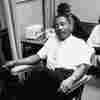
Code Switch
The power of martin luther king jr.'s anger.
When the architects of our republic wrote the magnificent words of the Constitution and the Declaration of Independence, they were signing a promissory note to which every American was to fall heir. This note was a promise that all men — yes, Black men as well as white men — would be guaranteed the unalienable rights of life, liberty and the pursuit of happiness.
It is obvious today that America has defaulted on this promissory note insofar as her citizens of color are concerned. Instead of honoring this sacred obligation, America has given the Negro people a bad check, a check which has come back marked insufficient funds.
But we refuse to believe that the bank of justice is bankrupt.
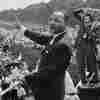
Martin Luther King is not your mascot
We refuse to believe that there are insufficient funds in the great vaults of opportunity of this nation. And so we've come to cash this check, a check that will give us upon demand the riches of freedom and the security of justice.
We have also come to this hallowed spot to remind America of the fierce urgency of now. This is no time to engage in the luxury of cooling off or to take the tranquilizing drug of gradualism.
Now is the time to make real the promises of democracy. Now is the time to rise from the dark and desolate valley of segregation to the sunlit path of racial justice. Now is the time to lift our nation from the quick sands of racial injustice to the solid rock of brotherhood. Now is the time to make justice a reality for all of God's children.

Civil rights protesters march from the Washington Monument to the Lincoln Memorial for the March on Washington on Aug. 28, 1963. Kurt Severin/Three Lions/Hulton Archive/Getty Images hide caption
It would be fatal for the nation to overlook the urgency of the moment. This sweltering summer of the Negro's legitimate discontent will not pass until there is an invigorating autumn of freedom and equality. 1963 is not an end, but a beginning. Those who hope that the Negro needed to blow off steam and will now be content will have a rude awakening if the nation returns to business as usual.
There will be neither rest nor tranquility in America until the Negro is granted his citizenship rights. The whirlwinds of revolt will continue to shake the foundations of our nation until the bright day of justice emerges.
But there is something that I must say to my people who stand on the warm threshold which leads into the palace of justice. In the process of gaining our rightful place, we must not be guilty of wrongful deeds. Let us not seek to satisfy our thirst for freedom by drinking from the cup of bitterness and hatred.
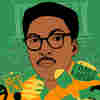
Throughline
Bayard rustin: the man behind the march on washington (2021).
We must forever conduct our struggle on the high plane of dignity and discipline. We must not allow our creative protest to degenerate into physical violence. Again and again, we must rise to the majestic heights of meeting physical force with soul force. The marvelous new militancy which has engulfed the Negro community must not lead us to a distrust of all white people, for many of our white brothers, as evidenced by their presence here today, have come to realize that their destiny is tied up with our destiny.
And they have come to realize that their freedom is inextricably bound to our freedom. We cannot walk alone. And as we walk, we must make the pledge that we shall always march ahead. We cannot turn back.
There are those who are asking the devotees of civil rights, when will you be satisfied? We can never be satisfied as long as the Negro is the victim of the unspeakable horrors of police brutality. We can never be satisfied as long as our bodies, heavy with the fatigue of travel, cannot gain lodging in the motels of the highways and the hotels of the cities.
We cannot be satisfied as long as the Negro's basic mobility is from a smaller ghetto to a larger one. We can never be satisfied as long as our children are stripped of their selfhood and robbed of their dignity by signs stating: for whites only.
We cannot be satisfied as long as a Negro in Mississippi cannot vote and a Negro in New York believes he has nothing for which to vote.
No, no, we are not satisfied, and we will not be satisfied until justice rolls down like waters, and righteousness like a mighty stream.
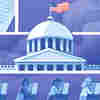
How The Voting Rights Act Came To Be And How It's Changed
I am not unmindful that some of you have come here out of great trials and tribulations. Some of you have come fresh from narrow jail cells. Some of you have come from areas where your quest for freedom left you battered by the storms of persecution and staggered by the winds of police brutality. You have been the veterans of creative suffering. Continue to work with the faith that unearned suffering is redemptive. Go back to Mississippi, go back to Alabama, go back to South Carolina, go back to Georgia, go back to Louisiana, go back to the slums and ghettos of our Northern cities, knowing that somehow this situation can and will be changed.
Let us not wallow in the valley of despair, I say to you today, my friends.
So even though we face the difficulties of today and tomorrow, I still have a dream. It is a dream deeply rooted in the American dream. I have a dream that one day this nation will rise up and live out the true meaning of its creed: We hold these truths to be self-evident, that all men are created equal.

People clap and sing along to a freedom song between speeches at the March on Washington for Jobs and Freedom in 1963. Express Newspapers via Getty Images hide caption
I have a dream that one day on the red hills of Georgia, the sons of former slaves and the sons of former slave owners will be able to sit down together at the table of brotherhood.
I have a dream that one day even the state of Mississippi, a state sweltering with the heat of injustice, sweltering with the heat of oppression will be transformed into an oasis of freedom and justice.
I have a dream that my four little children will one day live in a nation where they will not be judged by the color of their skin but by the content of their character. I have a dream today.
I have a dream that one day down in Alabama with its vicious racists, with its governor having his lips dripping with the words of interposition and nullification, one day right down in Alabama little Black boys and Black girls will be able to join hands with little white boys and white girls as sisters and brothers. I have a dream today.
I have a dream that one day every valley shall be exalted, every hill and mountain shall be made low, the rough places will be made plain, and the crooked places will be made straight, and the glory of the Lord shall be revealed, and all flesh shall see it together.
Nikole Hannah-Jones on the power of collective memory

- LISTEN & FOLLOW
- Apple Podcasts
- Google Podcasts
- Amazon Music
Your support helps make our show possible and unlocks access to our sponsor-free feed.
This is our hope. This is the faith that I go back to the South with. With this faith, we will be able to hew out of the mountain of despair a stone of hope. With this faith we will be able to transform the jangling discords of our nation into a beautiful symphony of brotherhood. With this faith we will be able to work together, to pray together, to struggle together, to go to jail together, to stand up for freedom together, knowing that we will be free one day.
This will be the day when all of God's children will be able to sing with new meaning: My country, 'tis of thee, sweet land of liberty, of thee I sing. Land where my fathers died, land of the pilgrims' pride, from every mountainside, let freedom ring.
And if America is to be a great nation, this must become true. And so let freedom ring from the prodigious hilltops of New Hampshire. Let freedom ring from the mighty mountains of New York. Let freedom ring from the heightening Alleghenies of Pennsylvania. Let freedom ring from the snowcapped Rockies of Colorado. Let freedom ring from the curvaceous slopes of California. But not only that, let freedom ring from Stone Mountain of Georgia. Let freedom ring from Lookout Mountain of Tennessee. Let freedom ring from every hill and molehill of Mississippi. From every mountainside, let freedom ring.
And when this happens, and when we allow freedom ring, when we let it ring from every village and every hamlet, from every state and every city, we will be able to speed up that day when all of God's children, Black men and white men, Jews and Gentiles, Protestants and Catholics, will be able to join hands and sing in the words of the old Negro spiritual: Free at last. Free at last. Thank God almighty, we are free at last.
Correction Jan. 15, 2024
A previous version of this transcript included the line, "We have also come to his hallowed spot to remind America of the fierce urgency of now." The correct wording is "We have also come to this hallowed spot to remind America of the fierce urgency of now."
Rev. Dr. Martin Luther King Jr.'s 1963 Speech at Keuka College
Dr. King gave the baccalaureate address on June 16, 1963. Listen now and be a part of history.

- College History
- Service & Social Justice
- Spiritual Life
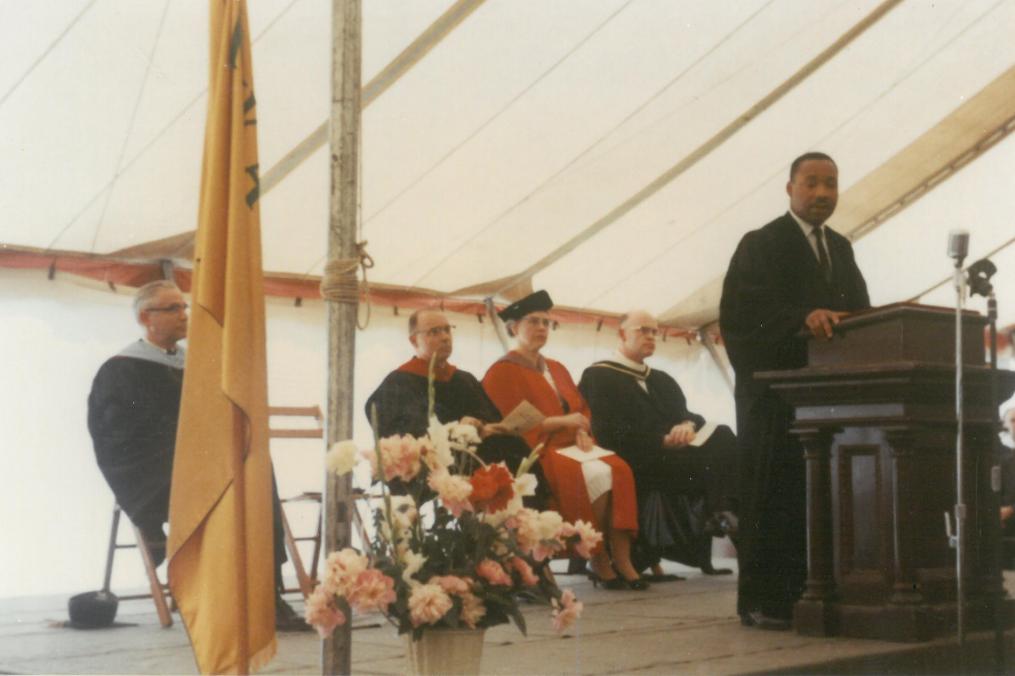
Dr. Martin Luther King Jr. is shown delivering the baccalaureate address on the campus of Keuka College on June 16, 1963, in one of the only known color photographs of the event.
Class of this great institution of learning, and ladies and gentlemen. I need not pause to say how very delighted I am to have the privilege and opportunity of being here today and being on the campus of Keuka College. — Rev. Dr. Martin Luther King Jr.
With those words, Civil Rights icon Dr. Martin Luther King Jr. began the baccalaureate address on the campus of Keuka College on June 16, 1963.
Long thought lost to the ages, a reel-to-reel recording of this historic address was recently returned to Keuka College by a former employee. The approximately 35-minute speech has now been digitally transferred and will be played for the public at a listening event on campus during Black History Month.
Download the Listener's Guide
“Dr. Martin Luther King Jr.’s visit to our campus was a watershed moment in the College’s history,” said College President Dr. Jorge L. Díaz-Herrera. “So we are thrilled to have the original recording of this stirring speech back in our possession – and even more excited to share it with the public.”
The public broadcast, which is to include a roundtable discussion and reception, is scheduled for 6:30 p.m. Tuesday, Feb. 20, in the College’s Norton Chapel. It will be free and open to the public. An earlier public broadcast – scheduled exclusively for students, faculty, and staff of the College – is planned for 12:20 p.m. that day, during Common Hour, also in Norton Chapel. Events will also include a related 4:35 p.m. program, roundtable discussions, and an end-of-the-day reception.
The speech, which centers on King’s famous sermon “The Three Dimensions of a Complete Life,” came amid a tumultuous period in the Civil Rights movement. The Birmingham marches against segregation had begun just two months earlier, resulting in King’s arrest on April 12 (Good Friday). It was during this confinement that he wrote his enduring declaration, “Letter from Birmingham Jail.”
And fellow Civil Rights leader Medgar Evers had been assassinated just days prior to the address. Indeed, King came to Keuka Park directly from the June 15 Evers funeral in Jackson, Mississippi. He makes note of the event during his speech, after intoning the words of the Civil Rights anthem, “We Shall Overcome”:
“Before the victory’s won some will have to get scarred up a bit. Before the victory’s won maybe some will have to face what the young man whose funeral I attended yesterday afternoon in Jackson, Mississippi, Medgar Evers, faced, and that is physical death. But we shall overcome. Before the victory’s won, maybe some will have to lose our jobs. Before the victory’s won more will have to go to jail. We shall overcome. And I’ll tell you why, because the arc of the moral universe is long, but it bends toward justice.”
Following his address, King was presented with an honorary Doctor of Letters degree from then-College President Dr. William S. Litterick.
In a July 3 follow-up letter, King thanked President Litterick for the invitation and trustees for the degree: “This is just a note again to express my appreciation to you for making my recent visit to Keuka College so meaningful. Mrs. King and I enjoyed every minute of our visit.”
A little more than two months after his Keuka College address, King would lead the March on Washington, at which he galvanized the nation and the Civil Rights movement with his historic “I Have a Dream” speech.
He was named Time magazine’s “Man of the Year” in 1963 and, the following year, received the Nobel Peace Prize.
King’s widow, Coretta Scott King, returned to the Keuka College campus in 1970 to receive an honorary Doctor of Humane Letters degree from the College.
You Might Also Like

Digging Deep: Keuka College Students Plant Trees and Foster Connections During Alternative Spring Break
Nearly a dozen students trade relaxation for restoration on a service-oriented spring break trip.
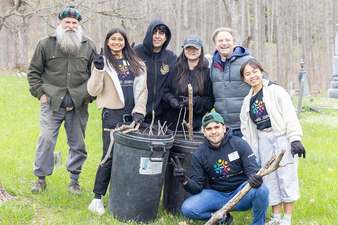
Commemorating a Legacy: Celebrate Service…Celebrate Yates Marks 25 Years of Community Impact
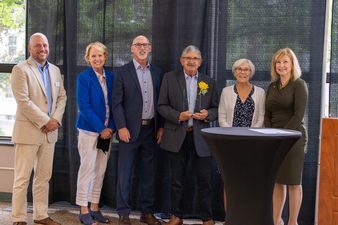
Keuka College Seeks Nominees for Its 2024 Stork Award
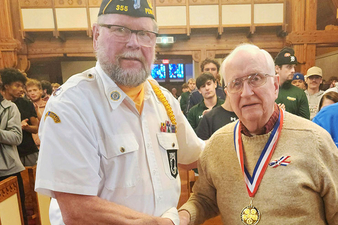
Keuka College Honors Bravery, Extends Gratitude at Veterans Day Ceremony
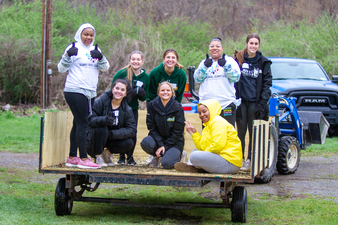
Keuka College, Local Community Mark 24 Years of Service to Yates County
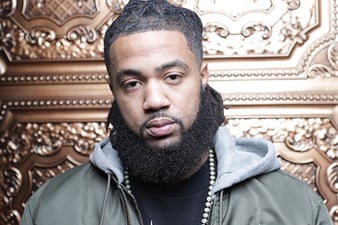
Fribolin Lecture Aims to Spark Conversation and Change Through Art and Activism
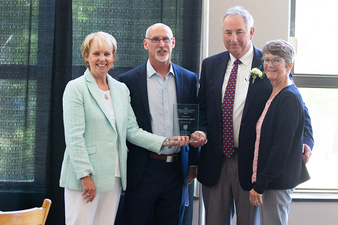
What a Team! Jeff and Wendy Gifford Receive Keuka College’s 2021-22 Stork Award
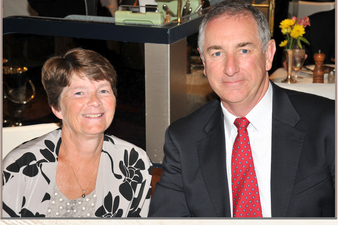
Penn Yan’s Jeff and Wendy Gifford to Receive Keuka College’s Prestigious Stork Award Aug. 11
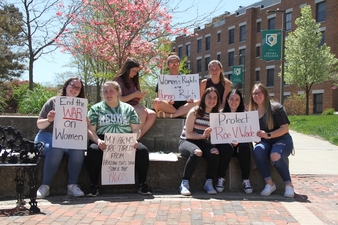
Keuka College Students Rally for Women's Rights
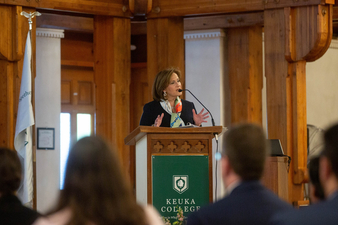
White House Insider Anita McBride Spotlights History, Influence of First Ladies at Keuka College
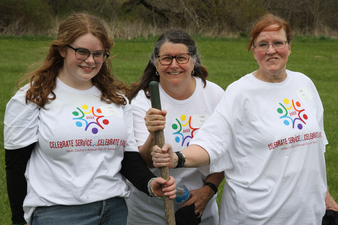
Keuka College Marks the Return of Celebrate Service… Celebrate Yates
Explore blog topics.
Digital Humanities
- Projects and Initiatives
- Graduate Certificate
- Full Site Navigation
Finding King’s Speech

Editor’s Note: Earlier versions of this article appeared in our print magazine, Accolades, and online.
For years, Rocky Mount citizens have told tales about hearing the first rendition of Martin Luther King Jr.’s “I Have a Dream” speech.
On Nov. 27, 1962, nine months before the refrain echoed across the National Mall during the March on Washington, King’s words rang out in the gymnasium of a segregated high school in the small North Carolina town.
In a 55-minute address to a packed house of 1,800 residents, King delivered — for the first time — phrases that would ultimately inspire millions.
“So my friends in Rocky Mount, I have a dream tonight,” King declared.
Five decades later, that speech has a new, vastly larger audience. After uncovering and restoring a recording of King’s Rocky Mount speech, NC State English professor Jason Miller is airing the address for the world to hear.
Miller created kingsfirstdream.com , a website where visitors can listen to the audio and read a full transcript, accompanied by 89 interactive annotations that explain the speech’s historical and literary contexts. He hopes the site will draw researchers and students of English, rhetoric, history, politics and social sciences.
However, his most significant find came only an hour and a half from his NC State campus office, at Rocky Mount’s Braswell Memorial Library. A librarian there told Miller she found a reel of acetate tape sitting on her desk when she returned from vacation. Inside a box holding the 1.5 mm recording was a note penned in elegant handwriting: “Dr. Martin Luther King speech — please do not erase.”
When he played it, Miller says he knew he’d found what he was looking for: the complete 1962 Rocky Mount speech, which captures King at the height of his oratorical prowess. Although the recording is similar to King’s 1963 address in Washington, Miller said it’s “incredibly unique,” marking a high point in King’s development of the “dream” motif as a rhetorical device.
Miller should know. He’s spent much of the past decade charting the evolution of King’s “dream” and how it was influenced by Hughes’ poetry.
Jason Miller. Photo credit: Marc Hall.
King-Hughes connection
While it’s clear that Hughes “sparked King’s own poetic self,” Miller says, that influence is hard to trace. Miller pored over Hughes’ poetry and King’s speeches from the early 1960s.
“The ideas from Hughes’ poetry are there, but they’re submerged,” Miller says.
To chart the connections between Hughes and King, Miller bought a piece of butcher’s paper three feet tall and 14 feet long on which he documented “letters exchanged, poems sent, times they met.” Working backward from King’s famous March on Washington address, Miller made a notation for every time King uttered the word “dream” in a speech, publication or correspondence.
The exercise brought Miller back to a speech King delivered on Aug. 11, 1956, when King spoke of the dream while paraphrasing Hughes’ 1941 poem “I Dream a World.” In 1959, King riffed on Hughes’ poem “Harlem (Dream Deferred),” when talking about shattered dreams during a speech. And in January 1960, King had Hughes write a poem about dreams for a special event.
But unlike several speeches that lightly touched on the dream theme, Miller said the Rocky Mount speech is far more than a paraphrased version of Hughes’ ideals; it’s King’s own dream, fully developed and articulated.
“This is the turning point,” Miller says — where Hughes’ utopian ideal is transformed into King’s bold vision for a just society. “He thought of himself in artistic terms, not simply as an orator,” Miller said of King. “When he got up to deliver a speech, he thought of it as his chance to perform. It wasn’t just rhetoric. It wasn’t just a speech. It was a way of bringing poetry into the world of public speaking and communication.”
The King-Hughes Connection
I dream a world where man
No other man will scorn,
Where love will bless the earth
And peace its paths adorn.
I dream a world where all
Will know sweet freedom’s way,
Where greed no longer saps the soul
Nor avarice blights our day.
A world I dream where black or white,
Whatever race you be,
Will share the bounties of the earth
And every man is free,
Where wretchedness will hang its head
And joy, like a pearl,
Attends the needs of all mankind —
Of such I dream, my world!
— “I Dream a World” by Langston Hughes
“So my friends in Rocky Mount, I have a dream tonight. It is a dream rooted firmly in the American dream. I have a dream that one day down in Sasser County, Georgia, where they burned two churches down a few days ago because Negroes wanted to register to vote, one day right down there little black boys and little black girls will be able to join hands with little white boys and little white girls and walk the streets as brothers and sisters. I have a dream.”
— Excerpt from King’s 1962 speech in Rocky Mount
- https://dh.news.chass.ncsu.edu/2016/05/12/finding-kings-speech/">
Filed Under
Leave a response cancel reply.
Your email address will not be published. All fields are required.
Your response
Save my name, email, and website in this browser for the next time I comment.
Other Top News
Explore queen victoria’s lost garden pavilion through 3d virtual model.
An interdisciplinary team of NC State researchers has virtually reconstructed a lost piece of history.
Interactive Tool Offers Window Into History of Arab-Americans in NYC
Interactive, online tool allows scholars and the public to better understand the long history of Syrian and Lebanese immigrants to the United States.
View the Archive
Why “I Have A Dream” Remains One Of History’s Greatest Speeches
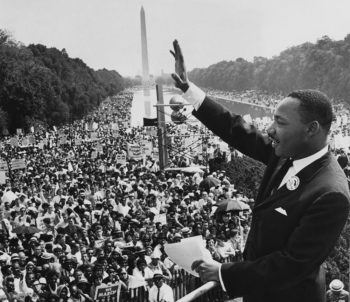
Monday will mark the holiday in honor of Rev. Martin Luther King Jr. and Texas A&M University Professor of Communication Leroy Dorsey is reflecting on King’s celebrated “I Have a Dream” speech, one which he said is a masterful use of rhetorical traditions.
King delivered the famous speech as he stood before a crowd of 250,000 people in front of the Lincoln Memorial on Aug. 28, 1963 during the “March on Washington.” The speech was televised live to an audience of millions.
“He was not just speaking to African Americans, but to all Americans” ~ Leroy Dorsey
Dorsey , associate dean for inclusive excellence and strategic initiatives in the College of Liberal Arts, said one of the reasons the speech stands above all of King’s other speeches – and nearly every other speech ever written – is because its themes are timeless. “It addresses issues that American culture has faced from the beginning of its existence and still faces today: discrimination, broken promises, and the need to believe that things will be better,” he said.
Powerful Use of Rhetorical Devices
Dorsey said the speech is also notable for its use of several rhetorical traditions, namely the Jeremiad, metaphor-use and repetition.
The Jeremiad is a form of early American sermon that narratively moved audiences from recognizing the moral standard set in its past to a damning critique of current events to the need to embrace higher virtues.
“King does that with his invocation of several ‘holy’ American documents such as the Emancipation Proclamation and Declaration of Independence as the markers of what America is supposed to be,” Dorsey said. “Then he moves to the broken promises in the form of injustice and violence. And he then moves to a realization that people need to look to one another’s character and not their skin color for true progress to be made.”
Second, King’s use of metaphors explains U.S. history in a way that is easy to understand, Dorsey said.
“Metaphors can be used to connect an unknown or confusing idea to a known idea for the audience to better understand,” he said. For example, referring to founding U.S. documents as “bad checks” transformed what could have been a complex political treatise into the simpler ideas that the government had broken promises to the American people and that this was not consistent with the promise of equal rights.
The third rhetorical device found in the speech, repetition, is used while juxtaposing contrasting ideas, setting up a rhythm and cadence that keeps the audience engaged and thoughtful, Dorsey said.
“I have a dream” is repeated while contrasting “sons of former slaves and the sons of former slave owners” and “judged by the content of their character” instead of “judged by the color of their skin.” The device was used also with “let freedom ring” which juxtaposes states that were culturally polar opposites – Colorado, California and New York vs. Georgia, Tennessee and Mississippi.
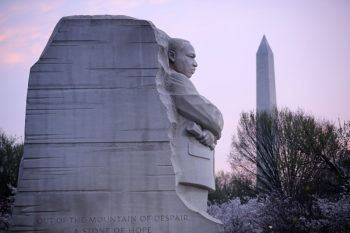
Words That Moved A Movement
The March on Washington and King’s speech are widely considered turning points in the Civil Rights Movement, shifting the demand and demonstrations for racial equality that had mostly occurred in the South to a national stage.
Dorsey said the speech advanced and solidified the movement because “it became the perfect response to a turbulent moment as it tried to address past hurts, current indifference and potential violence, acting as a pivot point between the Kennedy administration’s slow response and the urgent response of the ‘marvelous new militancy’ [those fighting against racism].”
What made King such an outstanding orator were the communication skills he used to stir audience passion, Dorsey said. “When you watch the speech, halfway through he stops reading and becomes a pastor, urging his flock to do the right thing,” he said. “The cadence, power and call to the better nature of his audience reminds you of a religious service.”
Lessons For Today
Dorsey said the best leaders are those who can inspire all without dismissing some, and that King in his famous address did just that.
“He was not just speaking to African Americans in that speech, but to all Americans, because he understood that the country would more easily rise together when it worked together,” he said.
“I Have a Dream” remains relevant today “because for as many strides that have been made, we’re still dealing with the elements of a ‘bad check’ – voter suppression, instances of violence against people of color without real redress, etc.,” Dorsey said. “Remembering what King was trying to do then can provide us insight into what we need to consider now.”
Additionally, King understood that persuasion doesn’t move from A to Z in one fell swoop, but it moves methodically from A to B, B to C, etc., Dorsey said. “In the line ‘I have a dream that one day ,’ he recognized that things are not going to get better overnight, but such sentiment is needed to help people stay committed day-to-day until the country can honestly say, ‘free at last!'”
Media contact: Lesley Henton, 979-845-5591, [email protected].
Related Stories
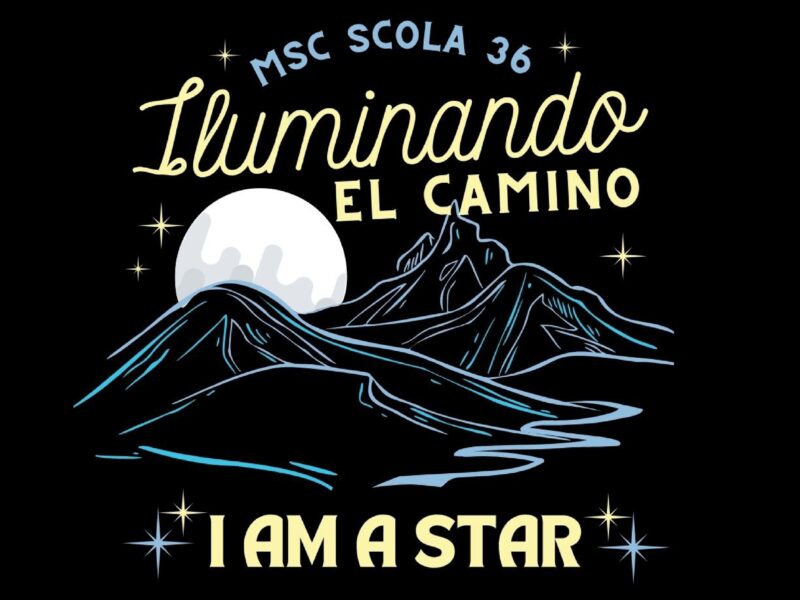
MSC SCOLA Illuminates Path To Success
The three-day Student Conference on Latinx Affairs offers opportunities for learning, leadership and growth.
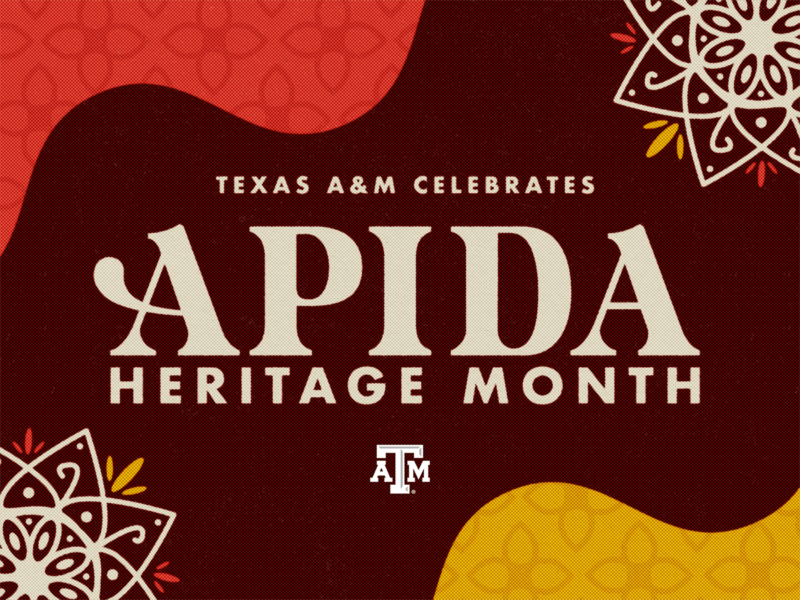
Asian Pacific Islander Desi American Heritage Month Events
A variety of campus organizations are inviting the Aggie community for unique cultural experiences.
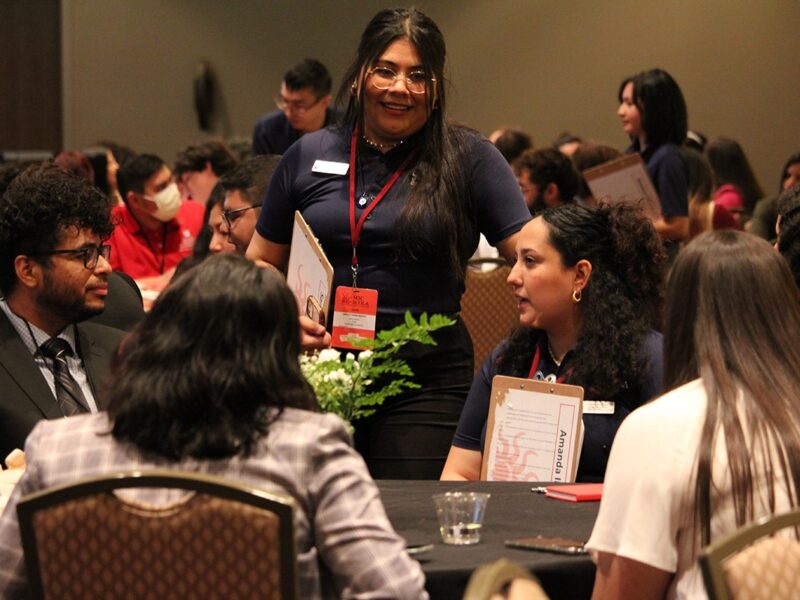
MSC SCOLA 2023: ‘Focusing On The Present To Ensure Our Future’
The MSC Student Conference On Latinx Affairs (SCOLA) will challenge student leaders to focus on the influence of the Latinx community.
Recent Stories

Common Heartburn Medications May Help Fight Cancer And Other Immune Disorders In Dogs, Texas A&M Researchers Find
Study shows proton pump inhibitors could enhance effectiveness of chemotherapy.

Caring For Dogs With Special Needs
Special-needs dogs may require more work for the owner, but it can also be immensely fulfilling to help a dog in need.

Aggies Bring Creative Visions To Life At Starlab Motion Capture Facility
With professional-grade equipment and guidance from an industry veteran, Visualization students are using the technology from feature films like ‘Avatar’ to tell their own stories.

Subscribe to the Texas A&M Today newsletter for the latest news and stories every week.

Martin Luther King’s ‘Dream’ Speech: A defining Moment in American History
29 août 2013
Commentaire(s)
Partager cet article
Facebook X LinkedIn WhatsApp

Among the different personalities who combatted racial inequality in America, the name of Martin Luther King stands out. He was even entitled man of the year by Time magazine in 1963.
Tes Sorensen, President John F. Kennedy’s speechwriter said “ the right speech on the right topic delivered by the right speaker in the right way at the right moment can ignite a fire, change men’s mind , open their eyes, bring hope to their lives and in all these ways, change the world… .”
Remember Winston Churchill’s wartime speeches like “ we shall fight on the beaches, our finest hour …” that are appealing not only in contents but also couched in a flowery, metaphorical language that helped boost up the morale of the British army to the point that it was said of Churchill that he “ mobilized the English language and sent it to battle ”.
President Kennedy’s ‘World Peace’ address at the American university in June 1963 calling for a re-examination of “Americans’ own attitudes” at the height of the Cold war and shortly after the Cuban missile crisis, much to the surprise of the American people, eased the simmering tension and brought about a détente in the US/Soviet relationship.
But the early 60s also witnessed a ground-breaking event. Though Kennedy gave his tacit support to the Civil rights movement and Lyndon B. Johnson got the Civil Rights Act and Voting Rights Act passed putting blacks and whites on the same pedestal as never before, it was Dr Martin Luther King’s historic - “I have a dream” - speech delivered on 28th August 1963, that American Historians claim was a defining moment in American history. King’s speech stirred America’s conscience that the time had arrived to change the centuries-old racist mindset engulfing the country and chart a new course where the US could justly be able to assume its leadership role of the “free world”.
King’s speech stands out as a soaring rhetoric bursting with metaphors and poetry. Analysts found it a well researched piece drawing references from Biblical passages and such documents as the Emancipation Proclamation, the US Declaration of Independence and the US Constitution. The impact of the eloquence was so resounding that Time magazine went about to confer upon King the man of the year title in 1963. King outpaced in the title race a serious contender, John F. Kennedy, whose “World Peace” speech a bit earlier had a positive influence in that it calibrated the minds of angry Americans into accepting peace thus avoiding a possible, if not military, confrontation with Khrushchev’s Soviet Union, a gesture which led to the nuclear Non-Proliferation Treaty.
That was followed in 1964 by the award to King of the Nobel Peace Prize at the young age of thirty-five, a distinction which even escaped the no less famous Mohandas Gandhi whose ideas of nonviolence King pulled into his own synthesis. Time also ranked some years ago the ‘dream’ speech in the ten best speeches ever delivered in world history.
On the steps of the Lincoln Memorial in Washington, an impressive crowd of 250,000 people with a large number of whites gathered to listen to King’s passionate demands for ‘jobs and freedom’. Millions watched on television. The “March on Washington” as it became famously known was the culmination of black agitations and protests against abuses and discriminatory practices suffered by blacks. Despite the Emancipation Proclamation pronounced in 1863, King said the “ life of the Negro is still crippled by the manacles of segregation and the chains of discrimination ”.
Pressure for the introduction of civil rights legislation had a timid beginning in 1941 but started gathering momentum in the 50s following a series of incidents described as outrageous. Like for example, the Montgomery bus incident in 1955 when Rosa Parks, a black woman, was jailed for refusing to surrender on a bus her seat to a white man. The segregation law required that blacks were to be seated at the back and had to give up seat to a white who could not find one. There was the incident of the six year old black girl. A group of whites spat on her face because she wanted to go to the same school as white children. A 14 year old boy was hunted down and murdered because he dared make some remarks to a white woman. Blacks even with high education were debarred from voting. The segregation law was applied in all its harshness. “ Segregation yesterday, segregation now and segregation forever ”, proclaimed George Wallace, a state Governor.
In public places, the notice “Whites only” prominently displayed reminded blacks not to tread in reserved zones. The irony was that as a super power the US was teaching lessons of freedom and democracy to others when apartheid was raging in its own land. Civil rights’ activists led by Martin Luther King cried foul. Enough was enough.
The call for boycott of public transport by black Americans was massively followed and lasted for almost a year. Protest marches soon spread to several states and were met with police brutality until the US Supreme Court struck out the segregation law. That was already a triumphant outcome for King’s movement. Emboldened by this success, King and his civil rights activists conducted peaceful civil disobedience demonstrations. Even Kennedy endorsed King’s movement and decided to push forward the civil rights bill. Kennedy knew well that the bill would face a tough ride through Congress because of segregationists’ opposition and urged King to abandon his protest marches because these were “ill-timed”. “ We want success in Congress, not just a big show at the Capitol,” said the President to King.
“ Frankly, I have never been engaged in a direct action ”,retorted King, “that did not seem ill-timed...” Hisconvictions in his deeds andaction, his profound faith inthe goodness of men andhis belief in the great potentialof American democracycould hardly dampen hiszeal to fight for justice andequal rights for the American
people, whites or blacks. “ We are not satisfied and we will not be satisfied,” he said, “until justice rolls down like waters and righteousness like a mighty stream”.
The historic “March on Washington” on 28th August 1963 claiming “Jobs and freedom” opened a new chapter in American history. With many Hollywood, music and literary celebrities mingling with the crowd, the mass rally at the Lincoln Memorial was designed as well to turn pressure on the Kennedy’s administration to expedite civil rights legislation. It was here in the speech delivered that King crafted his vision of a new America where blacks and whites were to enjoy equal rights. The “dream” speech has been hailed by Time as one of the ten greatest speeches ever delivered since the 4th century B.C when Socrates pleading his innocence in front of the Athenian judges ended his rhetoric with this line – “ the hour of departure has arrived, and we go our ways. I to die and you to live. What is better God only knows”. Likewise King’s speech was impregnated with emotion and lyrical cadence as he repeatedly used such refrains as –“ I have a dream ” (hope for a better future), “ Now is the time ” (for immediate action) and “ Let Freedom ring ” ( for equality and justice) so powerfully driven to stir the people’s moral conscience.
King started his speech by going back to the promises made ‘100 years ago’ through the “ magnificent words ” of the constitution and the Declaration of Independence that all men-black and white “ would be guaranteed the inalienable rights of life, liberty and the pursuit of happiness ”. Nothing happened since then. That was like a promissory note, he said, thrown to the winds. Instead of fulfilling this sacred obligation, America has given “ the negro people a bad cheque, a cheque which has come back marked ‘insufficient funds’ .” He refused to believe that the American “ bank of justice has gone bankrupt’’ for the “ negro lives, one hundred years later, on a lonely island of poverty in the midst of a vast ocean of material prosperity.” So he said “ now is the time ” to remind America that it had defaulted on this promissory note. There was a “ fierce urgency ”, he said for remedial action so that justice became a reality for “ all of God’s children ”. On a warning note, he said business was not going to be as usual henceforth for “ the whirlwind of revolt will continue to shake the foundations of our nation until the bright day of justice merges”. “Now is the time”, he said , “to rise from the dark and desolate valley of segregation to the sunlit path of racial justice”. In so doing, the nation would be lifted from the quicksand of racial injustice to the solid rock of brotherhood. But he said the militancy of the black population should in no way lead to the distrust of the white people for “their destiny is tied up with our destiny…” King was about to wind up the speech when the singer Mahalia Jackson, a friend of King, standing nearby shouted at King “ Tell them about your dream, Martin, tell them about your dream”. From there, King pickedup the thread of his speech spontaneously. Departing from his prepared text, he started to dwell on the dream he held so dear, a dream “deeply rooted in the American dream” . The dream ‘sequence’ part was not to be found in the original text, it is said but as a skilled preacher used to delivering sermons, King carried on extemporaneously defining his dream studded with a string of hopes: “ One day, the sons offormer slaves and sons of former slave owners will be able to sit down together at the table of brotherhood”. “One day even the state of Mississippi, a state sweltering with the heat of injustice and oppression will be transformed into an oasis of freedom and justice.” “One day, my four little children will one day live in a nation where they will not be judgedby the colour of their skin but by thecontent of their character”. “One day little black boys and black girls will be able to join hands with little white boys and white girls as sisters and brothers”. America could only become a great nation, he said, if his dream was realised. King ended his speech with the ‘freedom refrain’ that blacks should be freed from the yoke of segregation. He wished he could hear the air of ‘freedom ringing’ from hilltops and mountains of America, from every village and every hamlet, from every state and every city so that “ we will be able to speed that day when all of God’s children, black men and white men, Jews and Gentiles, Protestants and Catholics will be able to join hands and sing in the words of the old Negro spiritual: ‘ Free at last! Free at last!’ ” But as King stated “ 1963 is not an end but a beginning ”. Rightly so for the speech aroused America’s moral conscience and much more after King’s assassination in 1968. A new era started creeping in. On the heels of that historic occasion followed a great leap with the Civil Rights Act (1964) and the Voting Rights Act (1965) piloted by President Johnson. 50 years ago, it would not have occurred in the wildest dream of any American that of all things the country could have elected one day a black President. Barack Obama who will commemorate the ‘March on Washington’ at the Lincoln Memorial this Wednesday would not have become President of the US, political analysts argue, without the moral and political transformative leadership of Dr Martin Luther King.
Les plus récents

24 mai 2024 17:00
Collectif Arc-en-Ciel
Des mesures pour les droits des personnes transgenres à maurice.
24 mai 2024 16:30
Clap de fin en Bleu pour Giroud après l'Euro
24 mai 2024 16:06
Sooroojdev Phokeer : Un atout pour le MSM ?
24 mai 2024 16:00
«Metro leaks»
Les documents actuellement à l’étude.
24 mai 2024 15:00
«Chief Commercial Officer» de MK
Ziyaad parthasee remplace laurent recoura en pleine controverse.
24 mai 2024 14:00
Inondations à la rue Bissoondoyal
Une pétition pour exprimer la voix des habitants.
24 mai 2024 13:40
Coupe de France
Mbappé dans le groupe du psg pour la finale contre lyon.
24 mai 2024 13:00
Menaces d’une attaque à l’ambassade de France
Jaabir papauretty admis à brown-séquard car il dit entendre des voix.
24 mai 2024 12:38
Quatre morts dans l'effondrement d'un bar-restaurant aux Baléares
24 mai 2024 12:00
Budget supplémentaire de Rs 6,7 Mds
Débats prévus après le «budget day».
- History Classics
- Your Profile
- Find History on Facebook (Opens in a new window)
- Find History on Twitter (Opens in a new window)
- Find History on YouTube (Opens in a new window)
- Find History on Instagram (Opens in a new window)
- Find History on TikTok (Opens in a new window)
- This Day In History
- History Podcasts
- History Vault
‘I Have a Dream’ Speech
By: History.com Editors
Updated: December 19, 2023 | Original: November 30, 2017

The “I Have a Dream” speech, delivered by Martin Luther King, Jr. before a crowd of some 250,000 people at the 1963 March on Washington, remains one of the most famous speeches in history. Weaving in references to the country’s Founding Fathers and the Bible , King used universal themes to depict the struggles of African Americans before closing with an improvised riff on his dreams of equality. The eloquent speech was immediately recognized as a highlight of the successful protest, and has endured as one of the signature moments of the civil rights movement .
Civil Rights Movement Before the Speech
Martin Luther King Jr. , a young Baptist minister, rose to prominence in the 1950s as a spiritual leader of the burgeoning civil rights movement and president of the Southern Christian Leadership Conference (SLCC).
By the early 1960s, African Americans had seen gains made through organized campaigns that placed its participants in harm’s way but also garnered attention for their plight. One such campaign, the 1961 Freedom Rides , resulted in vicious beatings for many participants, but resulted in the Interstate Commerce Commission ruling that ended the practice of segregation on buses and in stations.
Similarly, the Birmingham Campaign of 1963, designed to challenge the Alabama city’s segregationist policies, produced the searing images of demonstrators being beaten, attacked by dogs and blasted with high-powered water hoses.
Around the time he wrote his famed “Letter from Birmingham Jail,” King decided to move forward with the idea for another event that coordinated with Negro American Labor Council (NACL) founder A. Philip Randolph’s plans for a job rights march.
March on Washington
Thanks to the efforts of veteran organizer Bayard Rustin, the logistics of the March on Washington for Jobs and Freedom came together by the summer of 1963.
Joining Randolph and King were the fellow heads of the “Big Six” civil rights organizations: Roy Wilkins of the National Association for the Advancement of Colored People (NAACP), Whitney Young of the National Urban League (NUL), James Farmer of the Congress on Racial Equality (CORE) and John Lewis of the Student Nonviolent Coordinating Committee (SNCC).
Other influential leaders also came aboard, including Walter Reuther of the United Auto Workers (UAW) and Joachim Prinz of the American Jewish Congress (AJC).
Scheduled for August 28, the event was to consist of a mile-long march from the Washington Monument to the Lincoln Memorial, in honor of the president who had signed the Emancipation Proclamation a century earlier, and would feature a series of prominent speakers.
Its stated goals included demands for desegregated public accommodations and public schools, redress of violations of constitutional rights and an expansive federal works program to train employees.
The March on Washington produced a bigger turnout than expected, as an estimated 250,000 people arrived to participate in what was then the largest gathering for an event in the history of the nation’s capital.
Along with notable speeches by Randolph and Lewis, the audience was treated to performances by folk luminaries Bob Dylan and Joan Baez and gospel favorite Mahalia Jackson .
‘I Have a Dream’ Speech Origins
In preparation for his turn at the event, King solicited contributions from colleagues and incorporated successful elements from previous speeches. Although his “I have a dream” segment did not appear in his written text, it had been used to great effect before, most recently during a June 1963 speech to 150,000 supporters in Detroit.
Unlike his fellow speakers in Washington, King didn’t have the text ready for advance distribution by August 27. He didn’t even sit down to write the speech until after arriving at his hotel room later that evening, finishing up a draft after midnight.

‘Free At Last’
As the March on Washington drew to a close, television cameras beamed Martin Luther King’s image to a national audience. He began his speech slowly but soon showed his gift for weaving recognizable references to the Bible, the U.S. Constitution and other universal themes into his oratory.
Pointing out how the country’s founders had signed a “promissory note” that offered great freedom and opportunity, King noted that “Instead of honoring this sacred obligation, America has given the Negro people a bad check, a check which has come back marked ‘insufficient funds.'”
At times warning of the potential for revolt, King nevertheless maintained a positive, uplifting tone, imploring the audience to “go back to Mississippi, go back to Alabama, go back to South Carolina, go back to Georgia, go back to Louisiana, go back to the slums and ghettos of our northern cities, knowing that somehow this situation can and will be changed. Let us not wallow in the valley of despair.”
Mahalia Jackson Prompts MLK: 'Tell 'em About the Dream, Martin'
Around the halfway point of the speech, Mahalia Jackson implored him to “Tell ’em about the ‘Dream,’ Martin.” Whether or not King consciously heard, he soon moved away from his prepared text.
Repeating the mantra, “I have a dream,” he offered up hope that “my four little children will one day live in a nation where they will not be judged by the color of their skin but by the content of their character” and the desire to “transform the jangling discords of our nation into a beautiful symphony of brotherhood.”
“And when this happens,” he bellowed in his closing remarks, “and when we allow freedom ring, when we let it ring from every village and every hamlet, from every state and every city, we will be able to speed up that day when all of God’s children, Black men and white men, Jews and Gentiles, Protestants and Catholics, will be able to join hands and sing in the words of the old Negro spiritual: ‘Free at last! Free at last! Thank God Almighty, we are free at last!'”
‘I Have a Dream’ Speech Text
I am happy to join with you today in what will go down in history as the greatest demonstration for freedom in the history of our nation.
Five score years ago, a great American, in whose symbolic shadow we stand today, signed the Emancipation Proclamation. This momentous decree came as a great beacon light of hope to millions of Negro slaves who had been seared in the flames of withering injustice. It came as a joyous daybreak to end the long night of captivity.
But one hundred years later, the Negro still is not free. One hundred years later, the life of the Negro is still sadly crippled by the manacles of segregation and the chains of discrimination. One hundred years later, the Negro lives on a lonely island of poverty in the midst of a vast ocean of material prosperity. One hundred years later, the Negro is still languished in the corners of American society and finds himself in exile in his own land. So we have come here today to dramatize a shameful condition.
In a sense we've come to our nation's Capital to cash a check. When the architects of our republic wrote the magnificent words of the Constitution and the Declaration of Independence , they were signing a promissory note to which every American was to fall heir.
This note was a promise that all men, yes, Black men as well as white men, would be guaranteed the unalienable rights of life, liberty, and the pursuit of happiness.
It is obvious today that America has defaulted on this promissory note insofar as her citizens of color are concerned. Instead of honoring this sacred obligation, America has given the Negro people a bad check; a check which has come back marked "insufficient funds."
But we refuse to believe that the bank of justice is bankrupt. We refuse to believe that there are insufficient funds in the great vaults of opportunity of this nation. So we have come to cash this check—a check that will give us upon demand the riches of freedom and the security of justice.
We have also come to this hallowed spot to remind America of the fierce urgency of now. This is no time to engage in the luxury of cooling off or to take the tranquilizing drug of gradualism. Now is the time to make real the promises of democracy. Now is the time to rise from the dark and desolate valley of segregation to the sunlit path of racial justice. Now is the time to lift our nation from the quicksands of racial injustice to the solid rock of brotherhood. Now is the time to make justice a reality for all of God's children.
It would be fatal for the nation to overlook the urgency of the moment. This sweltering summer of the Negro's legitimate discontent will not pass until there is an invigorating autumn of freedom and equality. Nineteen sixty-three is not an end, but a beginning. Those who hope that the Negro needed to blow off steam and will now be content will have a rude awakening if the nation returns to business as usual. There will be neither rest nor tranquility in America until the Negro is granted his citizenship rights. The whirlwinds of revolt will continue to shake the foundations of our nation until the bright day of justice emerges.
But there is something that I must say to my people who stand on the warm threshold which leads into the palace of justice. In the process of gaining our rightful place we must not be guilty of wrongful deeds. Let us not seek to satisfy our thirst for freedom by drinking from the cup of bitterness and hatred. We must forever conduct our struggle on the high plane of dignity and discipline. We must not allow our creative protest to degenerate into physical violence. Again and again we must rise to the majestic heights of meeting physical force with soul force.
The marvelous new militancy which has engulfed the Negro community must not lead us to a distrust of all white people, for many of our white brothers, as evidenced by their presence here today, have come to realize that their destiny is tied up with our destiny. And they have come to realize that their freedom is inextricably bound to our freedom. We cannot walk alone.
And as we walk, we must make the pledge that we shall march ahead. We cannot turn back. There are those who are asking the devotees of civil rights, "When will you be satisfied?"
We can never be satisfied as long as the Negro is the victim of the unspeakable horrors of police brutality.
We can never be satisfied as long as our bodies, heavy with the fatigue of travel, cannot gain lodging in the motels of the highways and the hotels of the cities.
We cannot be satisfied as long as the Negro's basic mobility is from a smaller ghetto to a larger one.
We can never be satisfied as long as our children are stripped of their selfhood and robbed of their dignity by signs stating "for whites only."
We cannot be satisfied as long as a Negro in Mississippi cannot vote and a Negro in New York believes he has nothing for which to vote.
No, no, we are not satisfied, and we will not be satisfied until justice rolls down like waters and righteousness like a mighty stream.
I am not unmindful that some of you have come here out of great trials and tribulations. Some of you have come fresh from narrow jail cells. Some of you have come from areas where your quest for freedom left you battered by the storms of persecution and staggered by the winds of police brutality. You have been the veterans of creative suffering. Continue to work with the faith that unearned suffering is redemptive.
Go back to Mississippi, go back to Alabama, go back to South Carolina, go back to Georgia, go back to Louisiana, go back to the slums and ghettos of our northern cities, knowing that somehow this situation can and will be changed. Let us not wallow in the valley of despair.
I say to you today, my friends, so even though we face the difficulties of today and tomorrow, I still have a dream. It is a dream deeply rooted in the American dream.
I have a dream that one day this nation will rise up and live out the true meaning of its creed: "We hold these truths to be self-evident; that all men are created equal."
I have a dream that one day on the red hills of Georgia the sons of former slaves and the sons of former slave owners will be able to sit down together at the table of brotherhood.
I have a dream that one day even the state of Mississippi, a state sweltering with the heat of injustice, sweltering with the heat of oppression, will be transformed into an oasis of freedom and justice.
I have a dream that my four little children will one day live in a nation where they will not be judged by the color of their skin but by the content of their character.
I have a dream today.
I have a dream that one day down in Alabama, with its vicious racists, with its governor having his lips dripping with the words of interposition and nullification, that one day right down in Alabama little Black boys and Black girls will be able to join hands with little white boys and white girls as sisters and brothers.
I have a dream that one day every valley shall be exhalted [sic], every hill and mountain shall be made low, the rough places will be made plain, and the crooked places will be made straight, and the glory of the Lord shall be revealed, and all flesh shall see it together.
This is our hope. This is the faith that I will go back to the South with. With this faith we will be able to hew out of the mountain of despair a stone of hope. With this faith we will be able to transform the jangling discords of our nation into a beautiful symphony of brotherhood. With this faith we will be able to work together, to pray together, to struggle together, to go to jail together, to stand up for freedom together, knowing that we will be free one day.
This will be the day when all of God's children will be able to sing with new meaning, "My country 'tis of thee, sweet land of liberty, of thee I sing. Land where my fathers died, land of the Pilgrims' pride, from every mountainside, let freedom ring."
And if America is to be a great nation, this must become true. So let freedom ring from the prodigious hilltops of New Hampshire. Let freedom ring from the mighty mountains of New York. Let freedom ring from the heightening Alleghenies of Pennsylvania. Let freedom ring from the snow-capped Rockies of Colorado. Let freedom ring from the curvaceous slopes of California. But not only that; let freedom ring from the Stone Mountain of Georgia. Let freedom ring from Lookout Mountain of Tennessee. Let freedom ring from every hill and molehill of Mississippi. From every mountainside, let freedom ring.
And when this happens, and when we allow freedom ring, when we let it ring from every village and every hamlet, from every state and every city, we will be able to speed up that day when all of God's children, Black men and white men, Jews and gentiles, Protestants and Catholics, will be able to join hands and sing in the words of the old Negro spiritual, "Free at last! Free at last! Thank God Almighty, we are free at last!"
MLK Speech Reception
King’s stirring speech was immediately singled out as the highlight of the successful march.
James Reston of The New York Times wrote that the “pilgrimage was merely a great spectacle” until King’s turn, and James Baldwin later described the impact of King’s words as making it seem that “we stood on a height, and could see our inheritance; perhaps we could make the kingdom real.”
Just three weeks after the march, King returned to the difficult realities of the struggle by eulogizing three of the girls killed in the bombing of Sixteenth Street Baptist Church in Birmingham.
Still, his televised triumph at the feet of Lincoln brought favorable exposure to his movement, and eventually helped secure the passage of the landmark Civil Rights Act of 1964 . The following year, after the violent Selma to Montgomery march in Alabama, African Americans secured another victory with the Voting Rights Act of 1965 .
Over the final years of his life, King continued to spearhead campaigns for change even as he faced challenges by increasingly radical factions of the movement he helped popularize. Shortly after visiting Memphis, Tennessee, in support of striking sanitation workers, and just hours after delivering another celebrated speech, “I’ve Been to the Mountaintop,” King was assassinated by shooter James Earl Ray on the balcony of his hotel room on April 4, 1968.
'I Have a Dream' Speech Legacy
Remembered for its powerful imagery and its repetition of a simple and memorable phrase, King’s “I Have a Dream” speech has endured as a signature moment of the civil rights struggle, and a crowning achievement of one of the movement’s most famous faces.
The Library of Congress added the speech to the National Recording Registry in 2002, and the following year the National Park Service dedicated an inscribed marble slab to mark the spot where King stood that day.
In 2016, Time included the speech as one of its 10 greatest orations in history.

HISTORY Vault: Black History
Watch acclaimed Black History documentaries on HISTORY Vault.
“I Have a Dream,” Address Delivered at the March on Washington for Jobs and Freedom. The Martin Luther King, Jr. Research and Education Institute . March on Washington for Jobs and Freedom. National Park Service . JFK, A. Philip Randolph and the March on Washington. The White House Historical Association . The Lasting Power of Dr. King’s Dream Speech. The New York Times .

Sign up for Inside History
Get HISTORY’s most fascinating stories delivered to your inbox three times a week.
By submitting your information, you agree to receive emails from HISTORY and A+E Networks. You can opt out at any time. You must be 16 years or older and a resident of the United States.
More details : Privacy Notice | Terms of Use | Contact Us
HISTORIC ARTICLE
Aug 28, 1963 ce: martin luther king jr. gives "i have a dream" speech.
On August 28, 1963, Dr. Martin Luther King, Jr., gave his "I Have a Dream" speech at the March on Washington, a large gathering of civil rights protesters in Washington, D.C., United States.
Social Studies, Civics, U.S. History
Loading ...
On August 28, 1963, Martin Luther King, Jr., took the podium at the March on Washington and addressed the gathered crowd, which numbered 200,000 people or more. His speech became famous for its recurring phrase “I have a dream.” He imagined a future in which “the sons of former slaves and the sons of former slave owners" could "sit down together at the table of brotherhood,” a future in which his four children are judged not "by the color of their skin but by the content of their character." King's moving speech became a central part of his legacy. King was born in Atlanta, Georgia, United States, in 1929. Like his father and grandfather, King studied theology and became a Baptist pastor . In 1957, he was elected president of the Southern Christian Leadership Conference ( SCLC ), which became a leading civil rights organization. Under King's leadership, the SCLC promoted nonviolent resistance to segregation, often in the form of marches and boycotts. In his campaign for racial equality, King gave hundreds of speeches, and was arrested more than 20 times. He won the Nobel Peace Prize in 1964 for his "nonviolent struggle for civil rights ." On April 4, 1968, King was shot and killed while standing on a balcony of his motel room in Memphis, Tennessee, U.S.
Media Credits
The audio, illustrations, photos, and videos are credited beneath the media asset, except for promotional images, which generally link to another page that contains the media credit. The Rights Holder for media is the person or group credited.
Last Updated
October 19, 2023
User Permissions
For information on user permissions, please read our Terms of Service. If you have questions about how to cite anything on our website in your project or classroom presentation, please contact your teacher. They will best know the preferred format. When you reach out to them, you will need the page title, URL, and the date you accessed the resource.
If a media asset is downloadable, a download button appears in the corner of the media viewer. If no button appears, you cannot download or save the media.
Text on this page is printable and can be used according to our Terms of Service .
Interactives
Any interactives on this page can only be played while you are visiting our website. You cannot download interactives.
Related Resources

- HISTORY & CULTURE
Who was Martin Luther King, Jr.?
A civil rights legend, Dr. King fought for justice through peaceful protest—and delivered some of the 20th century's most iconic speeches.
The Reverend Martin Luther King, Jr., is a civil rights legend. In the mid-1950s, King led the movement to end segregation and counter prejudice in the United States through the means of peaceful protest. His speeches—some of the most iconic of the 20th century—had a profound effect on the national consciousness. Through his leadership, the civil rights movement opened doors to education and employment that had long been closed to Black America.
In 1983, President Ronald Reagan signed a bill creating a federal holiday to honor King for his commitment to equal rights and justice for all. Observed for the first time on January 20, 1986, it’s called Martin Luther King Jr. Day. In January 2000, Martin Luther King Jr. Day was officially observed in all 50 U.S. states . Here’s what you need to know about King’s extraordinary life.
Though King's name is known worldwide, many may not realize that he was born Michael King, Jr. in Atlanta, Georgia on January 15, 1929. His father , Michael King, was a pastor at the Ebenezer Baptist Church in Atlanta. During a trip to Germany, King, Sr. was so impressed by the history of Protestant Reformation leader Martin Luther that he changed not only his own name, but also five-year-old Michael’s.
( Read about Martin Luther King, Jr. with your kids .)
His brilliance was noted early, as he was accepted into Morehouse College , a historically Black school in Atlanta, at age 15. By the summer before his last year of college, King knew he was destined to continue the family profession of pastoral work and decided to enter the ministry. He received his Bachelor’s degree from Morehouse at age 19, and then enrolled in Crozer Theological Seminary in Chester, Pennsylvania, graduating with a Bachelor of Divinity degree in 1951. He earned a doctorate in systematic theology from Boston University in 1955.
King married Coretta Scott on June 18, 1953, on the lawn of her parents' house in her hometown of Heiberger, Alabama. They became the parents of four children : Yolanda King (1955–2007), Martin Luther King III (b. 1957), Dexter Scott King (b. 1961), and Bernice King (b. 1963).
Becoming a civil rights leader
In 1954, when he was 25 years old, Dr. King became pastor of the Dexter Avenue Baptist Church in Montgomery, Alabama. In March 1955, Claudette Colvin—a 15-year-old Black schoolgirl in Montgomery—refused to give up her bus seat to a white man, which was a violation of Jim Crow laws, local laws in the southern United States that enforced racial segregation.
( Jim Crow laws created 'slavery by another name. ')
King was on the committee from the Birmingham African-American community that looked into the case. The local chapter of the National Association for the Advancement of Colored People (NAACP) briefly considered using Colvin's case to challenge the segregation laws, but decided that because she was so young—and had become pregnant—her case would attract too much negative attention.
Nine months later on December 1, 1955, a similar incident occurred when a seamstress named Rosa Parks was arrested for refusing to give up her seat on a city bus. The two incidents led to the Montgomery bus boycott , which was urged and planned by the President of the Alabama Chapter of the NAACP, E.D. Nixon, and led by King. The boycott lasted for 385 days.

King’s prominent and outspoken role in the boycott led to numerous threats against his life, and his house was firebombed. He was arrested during the campaign, which concluded with a United States District Court ruling in Browder v. Gayle ( in which Colvin was a plaintiff ) that ended racial segregation on all Montgomery public buses. King's role in the bus boycott transformed him into a national figure and the best-known spokesman of the civil rights movement.
Fighting for change through nonviolent protest
From the early days of the Montgomery boycott, King had often referred to India’s Mahatma Gandhi as “the guiding light of our technique of nonviolent social change.”
You May Also Like

The birth of the Holy Roman Empire—and the unlikely king who ruled it

How Martin Luther King, Jr.’s multifaceted view on human rights still inspires today

How Martin Luther Started a Religious Revolution
In 1957, King, Ralph Abernathy, Fred Shuttlesworth, Joseph Lowery, and other civil rights activists founded the Southern Christian Leadership Conference to harness the organizing power of Black churches to conduct nonviolent protests to ultimately achieve civil rights reform. The group was part of what was called “The Big Five” of civil rights organizations, which included the NAACP, the National Urban League, the Student Nonviolent Coordinating Committee, and the Congress on Racial Equality.
Through his connections with the Big Five civil rights groups, overwhelming support from Black America and with the support of prominent individual well-wishers, King’s skill and effectiveness grew exponentially. He organized and led marches for Blacks' right to vote, desegregation, labor rights, and other basic civil rights.
( How the U.S. Voting Rights Act was won—and why it's under fire today .)
On August 28, 1963, The March on Washington for Jobs and Freedom became the pinnacle of King’s national and international influence. Before a crowd of 250,000 people, he delivered the legendary “I Have A Dream” speech on the steps of the Lincoln Memorial. That speech, along with many others that King delivered, has had a lasting influence on world rhetoric .
In 1964, King was awarded the Nobel Peace Prize for his civil rights and social justice activism. Most of the rights King organized protests around were successfully enacted into law with the passage of the Civil Rights Act of 1964 and the 1965 Voting Rights Act .
Economic justice and the Vietnam War
King’s opposition to the Vietnam War became a prominent part of his public persona. On April 4, 1967—exactly one year before his death—he gave a speech called “Beyond Vietnam” in New York City, in which he proposed a stop to the bombing of Vietnam. King also suggested that the United States declare a truce with the aim of achieving peace talks, and that the U.S. set a date for withdrawal.
( King's advocacy for human rights around the world still inspires today .)
Ultimately, King was driven to focus on social and economic justice in the United States. He had traveled to Memphis, Tennessee in early April 1968 to help organize a sanitation workers’ strike, and on the night of April 3, he delivered the legendary “I've Been to the Mountaintop" speech , in which he compared the strike to the long struggle for human freedom and the battle for economic justice, using the New Testament's Parable of the Good Samaritan to stress the need for people to get involved.
Assassination
But King would not live to realize that vision. The next day, April 4, 1968, King was gunned down on the balcony of the Lorraine Motel in Memphis by James Earl Ray , a small-time criminal who had escaped the year before from a maximum-security prison. Ray was charged and convicted of the murder and sentenced to 99 years in prison on March 10, 1969. But Ray changed his mind after three days in jail, claiming he was not guilty and had been framed. He spent the rest of his life fighting unsuccessfully for a trial, despite the ultimate support of some members of the King family and the Reverend Jesse Jackson.
The turmoil that flowed from King’s assassination led many Black Americans to wonder if that dream he had spoken of so eloquently had died with him. But, today, young people around the world still learn about King's life and legacy—and his vision of equality and justice for all continue to resonate.
Related Topics
- CIVIL RIGHTS

Herod I: The controversial king who transformed the Holy Land

What was the Stonewall uprising?

Harriet Tubman, the spy: uncovering her secret Civil War missions

MLK and Malcolm X only met once. Here’s the story behind an iconic image.

Meet the 5 iconic women being honored on new quarters in 2024
- Paid Content
- Environment
- Photography
- Perpetual Planet
History & Culture
- History Magazine
- History & Culture
- Mind, Body, Wonder
- Terms of Use
- Privacy Policy
- Your US State Privacy Rights
- Children's Online Privacy Policy
- Interest-Based Ads
- About Nielsen Measurement
- Do Not Sell or Share My Personal Information
- Nat Geo Home
- Attend a Live Event
- Book a Trip
- Inspire Your Kids
- Shop Nat Geo
- Visit the D.C. Museum
- Learn About Our Impact
- Support Our Mission
- Advertise With Us
- Customer Service
- Renew Subscription
- Manage Your Subscription
- Work at Nat Geo
- Sign Up for Our Newsletters
- Contribute to Protect the Planet
Copyright © 1996-2015 National Geographic Society Copyright © 2015-2024 National Geographic Partners, LLC. All rights reserved

Free Directory
- Arts & Entertainment
- Education & Professional
- Religion & Spirituality
- Self Development
- Social Sciences
- Sports & Hobbies
Free Audio Book
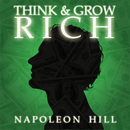
Get this free title from:
Free stuff in these categories, find more titles by.

Title Details
Learnoutloud.com review, people who liked martin luther king jr. discusses his i have a dream speech also liked these free titles:.
“I Have A Dream”: Annotated
Martin Luther King, Jr.’s iconic speech, annotated with relevant scholarship on the literary, political, and religious roots of his words.

For this month’s Annotations, we’ve taken Martin Luther King, Jr.’s iconic “I Have A Dream” speech, and provided scholarly analysis of its groundings and inspirations—the speech’s religious, political, historical and cultural underpinnings are wide-ranging and have been read as jeremiad, call to action, and literature. While the speech itself has been used (and sometimes misused) to call for a “color-blind” country, its power is only increased by knowing its rhetorical and intellectual antecedents.

Five score years ago, a great American, in whose symbolic shadow we stand signed the Emancipation Proclamation . This momentous decree came as a great beacon light of hope to millions of Negro slaves who had been seared in the flames of withering injustice. It came as a joyous daybreak to end the long night of captivity.
But one hundred years later, we must face the tragic fact that the Negro is still not free. One hundred years later, the life of the Negro is still sadly crippled by the manacles of segregation and the chains of discrimination. One hundred years later, the Negro lives on a lonely island of poverty in the midst of a vast ocean of material prosperity. One hundred years later, the Negro is still languishing in the corners of American society and finds himself an exile in his own land. So we have come here today to dramatize an appalling condition.
In a sense we have come to our nation’s capital to cash a check. When the architects of our republic wrote the magnificent words of the Constitution and the declaration of Independence, they were signing a promissory note to which every American was to fall heir. This note was a promise that all men would be guaranteed the inalienable rights of life, liberty, and the pursuit of happiness.
It is obvious today that America has defaulted on this promissory note insofar as her citizens of color are concerned. Instead of honoring this sacred obligation, America has given the Negro people a bad check which has come back marked “insufficient funds.” But we refuse to believe that the bank of justice is bankrupt. We refuse to believe that there are insufficient funds in the great vaults of opportunity of this nation. So we have come to cash this check — a check that will give us upon demand the riches of freedom and the security of justice. We have also come to this hallowed spot to remind America of the fierce urgency of now . This is no time to engage in the luxury of cooling off or to take the tranquilizing drug of gradualism. Now is the time to rise from the dark and desolate valley of segregation to the sunlit path of racial justice. Now is the time to open the doors of opportunity to all of God’s children. Now is the time to lift our nation from the quicksands of racial injustice to the solid rock of brotherhood.
It would be fatal for the nation to overlook the urgency of the moment and to underestimate the determination of the Negro. This sweltering summer of the Negro’s legitimate discontent will not pass until there is an invigorating autumn of freedom and equality. Nineteen sixty-three is not an end, but a beginning. Those who hope that the Negro needed to blow off steam and will now be content will have a rude awakening if the nation returns to business as usual. There will be neither rest nor tranquility in America until the Negro is granted his citizenship rights. The whirlwinds of revolt will continue to shake the foundations of our nation until the bright day of justice emerges.
But there is something that I must say to my people who stand on the warm threshold which leads into the palace of justice. In the process of gaining our rightful place we must not be guilty of wrongful deeds. Let us not seek to satisfy our thirst for freedom by drinking from the cup of bitterness and hatred .
We must forever conduct our struggle on the high plane of dignity and discipline. We must not allow our creative protest to degenerate into physical violence. Again and again we must rise to the majestic heights of meeting physical force with soul force. The marvelous new militancy which has engulfed the Negro community must not lead us to distrust of all white people, for many of our white brothers, as evidenced by their presence here today, have come to realize that their destiny is tied up with our destiny and their freedom is inextricably bound to our freedom. We cannot walk alone.
And as we walk, we must make the pledge that we shall march ahead. We cannot turn back. There are those who are asking the devotees of civil rights, “When will you be satisfied?” We can never be satisfied as long as our bodies, heavy with the fatigue of travel, cannot gain lodging in the motels of the highways and the hotels of the cities. We cannot be satisfied as long as the Negro’s basic mobility is from a smaller ghetto to a larger one. We can never be satisfied as long as a Negro in Mississippi cannot vote and a Negro in New York believes he has nothing for which to vote. No, no, we are not satisfied, and we will not be satisfied until justice rolls down like waters and righteousness like a mighty stream.
I am not unmindful that some of you have come here out of great trials and tribulations. Some of you have come fresh from narrow cells. Some of you have come from areas where your quest for freedom left you battered by the storms of persecution and staggered by the winds of police brutality. You have been the veterans of creative suffering. Continue to work with the faith that unearned suffering is redemptive.
Go back to Mississippi, go back to Alabama, go back to Georgia, go back to Louisiana, go back to the slums and ghettos of our northern cities, knowing that somehow this situation can and will be changed. Let us not wallow in the valley of despair.
I say to you today, my friends, that in spite of the difficulties and frustrations of the moment, I still have a dream. It is a dream deeply rooted in the American dream .
I have a dream that one day this nation will rise up and live out the true meaning of its creed: “We hold these truths to be self-evident: that all men are created equal.”
I have a dream that one day on the red hills of Georgia the sons of former slaves and the sons of former slaveowners will be able to sit down together at a table of brotherhood.
I have a dream that one day even the state of Mississippi, a desert state, sweltering with the heat of injustice and oppression, will be transformed into an oasis of freedom and justice.
I have a dream that my four children will one day live in a nation where they will not be judged by the color of their skin but by the content of their character.
I have a dream today.
I have a dream that one day the state of Alabama, whose governor’s lips are presently dripping with the words of interposition and nullification, will be transformed into a situation where little black boys and black girls will be able to join hands with little white boys and white girls and walk together as sisters and brothers.
I have a dream that one day every valley shall be exalted , every hill and mountain shall be made low, the rough places will be made plain, and the crooked places will be made straight, and the glory of the Lord shall be revealed, and all flesh shall see it together.
This is our hope. This is the faith with which I return to the South. With this faith we will be able to hew out of the mountain of despair a stone of hope. With this faith we will be able to transform the jangling discords of our nation into a beautiful symphony of brotherhood . With this faith we will be able to work together, to pray together, to struggle together, to go to jail together, to stand up for freedom together, knowing that we will be free one day.
Weekly Newsletter
Get your fix of JSTOR Daily’s best stories in your inbox each Thursday.
Privacy Policy Contact Us You may unsubscribe at any time by clicking on the provided link on any marketing message.
This will be the day when all of God’s children will be able to sing with a new meaning, “My country, ’tis of thee, sweet land of liberty, of thee I sing. Land where my fathers died, land of the pilgrim’s pride, from every mountainside, let freedom ring.”
And if America is to be a great nation this must become true. So let freedom ring from the prodigious hilltops of New Hampshire. Let freedom ring from the mighty mountains of New York. Let freedom ring from the heightening Alleghenies of Pennsylvania!
Let freedom ring from the snowcapped Rockies of Colorado!
Let freedom ring from the curvaceous peaks of California!
But not only that; let freedom ring from Stone Mountain of Georgia!
Let freedom ring from Lookout Mountain of Tennessee!
Let freedom ring from every hill and every molehill of Mississippi. From every mountainside, let freedom ring.
When we let freedom ring, when we let it ring from every village and every hamlet, from every state and every city, we will be able to speed up that day when all of God’s children, black men and white men, Jews and Gentiles, Protestants and Catholics, will be able to join hands and sing in the words of the old Negro spiritual, “Free at last! free at last! Thank God Almighty, we are free at last!”
For dynamic annotations of this speech and other iconic works, see The Understanding Series from JSTOR Labs .
Support JSTOR Daily! Join our new membership program on Patreon today.

JSTOR is a digital library for scholars, researchers, and students. JSTOR Daily readers can access the original research behind our articles for free on JSTOR.
Get Our Newsletter
More stories.

- Luanda, Angola: The Paradox of Plenty

- Political Corruption in Athens and Rome

- Capturing the Civil War

Growing Guerrilla Warfare
Recent posts.
- How the Universe Forges Stars from Cosmic Clouds
- The Vital Near-Magic of Fire-Eating Fungi
Support JSTOR Daily
Sign up for our weekly newsletter.

What Did Martin Luther King Really Believe?
Monday marks the seventy-eighth birthday of Dr. Martin Luther King, Jr., the civil rights hero who was gunned down in Memphis in April 1968 at the age of 39. Since King’s death, historians and others across the political spectrum have hotly contested the meaning of his legacy. Who’s right?
Oddly enough, until recently it has been conservatives who have most vocally laid claim to King’s intellectual and political bequest. William Bradford Reynolds, who served as Ronald Reagan’s assistant attorney general for civil rights, and who waged a long battle against affirmative action, claimed that “the initial affirmative action message of racial unification—so eloquently delivered by Dr. Martin Luther King, Jr. . . . was effectively drowned out by the all too persistent drumbeat of racial polarization that accompanied the affirmative action preferences of the 1970s into 1980s.” Ward Connerly, the conservative black businessman who spearheaded California’s Proposition 209, barring affirmative action, announced that his group was “going to fight to get the nation back on the journey that Dr. King laid out.”
In their effort to lay claim to King, much as generations of politicians strove to “get right with Lincoln,” conservatives have presented an ahistorical portrait of him as an absolutist on the question of race and public policy. By their estimation, King’s “I have a dream” speech should be taken literally: He espoused a civic order where governments made no distinctions between citizens based on race. Hence he would have opposed compensatory set-asides, quotas, or timelines and targets aimed at redistributing jobs and economic resources.
The problem with this version of history is that it ignores much of what King said. In his book Why We Can’t Wait , he wrote that “no amount of gold could provide an adequate compensation for the exploitation and humiliation of the Negro in America down through the centuries. Not all the wealth of this affluent society could meet the bill. Yet a price can be placed on unpaid wages. The ancient common law has always provided a remedy for the appropriation of the labor of one human being by another. . . . The payment should be in the form of a massive program by the government of special, compensatory measures which could be regarded as a settlement in accordance with the accepted practice of common law. . . . I am proposing, therefore, that, just as we granted a GI Bill of Rights to war veterans, America launch a broad-based and gigantic Bill of Rights for the Disadvantaged, our veterans of the long siege of denial.”
Critically, he envisioned these broad-based, public-sector compensatory programs as targeting both African-Americans and poor whites, whom he labeled the “derivative victims” of slavery and Jim Crow. In this regard he leaned on the writings of W. E. B. Du Bois, who famously observed that poor and working-class whites gained nothing from Jim Crow but the psychological “wages of whiteness.” In return for the psychological boost that “whiteness” gave them, poor whites—millions of them, from slavery times through the modern age—surrendered political and economic power to their elite counterparts. King might well have been thinking of the radical white writer Lillian Smith’s 1943 parable, “Two Men and a Bargain,” in which “Once a time, down South, Mr.
Rich White made a bargain with Mr. Poor White. . . . You boss the nigger, and I’ll boss the money.” According to Smith, they “segregated southern money from Mr. Poor White and they . . . segregated the Negro from everything.”
Smith’s reasoning—and King’s—was well-founded. Jim Crow divided white and black labor against each other, stunting the growth of unions, labor parties, and liberal political coalitions. Jim Crow thus drove down wages across the board and secured a political system (chiefly in the American South) where taxes were regressive, public services were minimal, and political participation was sharply limited. Remember that on the eve of World War II, poll taxes in eight Southern states disenfranchised as many as 64 percent of white citizens and virtually all eligible black voters. It’s hard to say what most working-class whites got from Jim Crow other than the satisfaction that they weren’t black.
As the 1960s wore on, King came to view social problems more through the lens of class and less through the lens of race. In his 1967 book, Where Do We Go From Here: Chaos or Community? , he wrote, “In the treatment of poverty nationally, one fact stands out: there are twice as many white poor as Negro poor in the United States. Therefore I will not dwell on the experiences of poverty that derive from racial discrimination, but will discuss the poverty that affects white and Negro alike.” Yet he was never so naive or ahistorical as to divorce race and class entirely, and in designing solutions to the inequities that plagued American society, he consciously singled out all African-Americans (and some whites too) as especially deserving of compensatory justice.
If conservatives have been too quick to claim King as their own, liberals also forget that while the civil rights leader shared many of their policy commitments—an end to the war in southeast Asia, anti-poverty legislation, civil rights statutes, respect for the United Nations and other international bodies—his fundamental understanding of human nature was not, in fact, conventionally liberal. In his recent book, A Stone of Hope : Prophetic Religion and the Death of Jim Crow , the historian David Chappell shows that King’s rearing in the neo-fundamentalist black church conditioned him to believe in original sin. Religious and political liberals from Washington Gladden to John Dewey had long accepted as an article of faith the progressive belief in humankind’s perfectibility. Theirs was a social theology that rejected the old evangelical emphasis on otherworldly salvation and endeavored to create “heaven on earth” through good works and civic action. King, on the other hand, was reared in a religious tradition that stressed the sinful nature of mankind and the otherworldly imperative of preparing individual souls for salvation.
As an undergraduate and graduate student, King was drawn to the writings of Reinhold Niebuhr, whose pessimistic assessment of human nature—Niebuhr believed that humans, when acting in concert, were naturally prone to immorality—also broke sharply with liberal social gospel. Studying in the immediate aftermath of World War II and the early years of the Cold War, King was attracted to Niebuhr’s call for political coercion in the service of combating injustice. Niebuhr’s theology, and by extension King’s, reflected a disillusionment with humankind’s recent descent into mass violence.
In this sense, living in the shadow of Nazism, Stalinism, and McCarthyism, neither Niebuhr nor King shared the faith of most mainstream liberals in the gradual improvement of humankind and human society. Their pessimism about human nature was much more in line with the social thought of mid-twentieth-century conservatives. Little wonder that, in his first major speech as a civil rights leader, King told a gathering of black bus boycotters in Montgomery, Alabama, “The Almighty God himself is not the God just standing out saying through Hosea, ‘I love you, Israel.’ He’s also the God that stands up before the nations and said, ‘Be still and know that I am God, that if you don’t obey me, I will break the backbone of your power and slap you out of the orbits of your international and national relationships.’”
So what to make of Martin Luther King, Jr., on his seventy-eighth birthday and his national holiday? He was a deep and profound political thinker, constantly in flux. His politics was radical, but his ideology was truly complex.
—Joshua Zeitz is a contributing editor of American Heritage magazine and the author of Flapper: A Madcap Story of Sex, Style, Celebrity, and the Women Who Made Modern America (Crown).
- Martin Luther King Jr.
We hope you enjoy our work.
Please support this 72-year tradition of trusted historical writing and the volunteers that sustain it with a donation to American Heritage .
© Copyright 1949-2023 American Heritage Publishing Co . All Rights Reserved. To license content, please contact licenses [at] americanheritage.com.
- Newsletters
- Help Center
- Metro Atlanta
- Georgia News
- Legislature
- National & World News
- 2024 Election
- Trump Georgia case
A raised fist, a march among the protests of Biden’s Morehouse speech
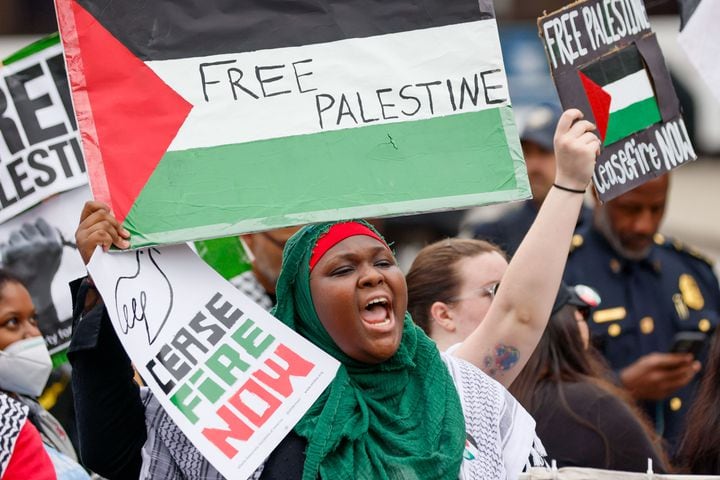
Several dozen demonstrators marched to Morehouse College Sunday to protest President Joe Biden’s position on the ongoing war in Gaza and to air grievances on other topics.
The displays of disagreement with Biden were clear as the presidential motorcade entered the Atlanta campus at 8:37 a.m. A lone protester held a handwritten sign that said “Genocide Joe” among other things.
About a half-mile away, protesters gathered at West End Park to prepare for their peaceful demonstration. As the crowd continued to grow, protesters chanted “Biden Biden you’re a liar, we demand a cease-fire” and “Biden Biden you can’t hide, we charge you with genocide.”
Daxton Pettus, a junior at Morehouse, said he came out to stand up for what is right.
”I made a commitment, a personal commitment, to be on the right side of history and to be an active agent,” Pettus said.
Pettus said he met with school trustees and the college’s president, David A. Thomas, but felt his voice wasn’t really heard.
”They said that they would be open for conversation but their words held no value, because they have not followed up and it’s been two weeks.”
He also said having Biden speak goes totally against what the college stands for.
”This is the home of Martin Luther King,” Pettus said. “We’re inviting a war criminal to come to speak to students, even though he is the president.”
Discussions about Biden speaking at Morehouse began in September, before the war began in Gaza.
The demonstrators took about a 10-minute walk to Morehouse’s campus. Atlanta police followed along, and asked protesters to stay on the sidewalk.
The group stopped at the intersection of Joseph E. Lowery Blvd and Fair Street. They chanted “Long live Palestine,” and “Come November, we’ll remember” referring to the upcoming election.
There were some expressions of discontent of the Biden administration’s position on the war inside the commencement ceremony.

Credit: [email protected]
In his valedictory speech, DeAngelo Fletcher, a Chicago native, was the first person to directly speak on the Gaza conflict.
With the president sitting behind him, Fletcher said he and the world has watched all of the bloodshed in the region. He talked extensively about King, who graduated from Morehouse in 1948. Fletcher said King served as his motivation for his remarks.
”I am calling for an immediate cease-fire,” he said among cheers. “I sing the song of righteous justice.”
Thomas hugged Fletcher after he concluded his speech. Biden applauded, stood and shook Fletcher’s hand, and talked to him briefly.
As Biden spoke, assistant professor Taura Taylor turned her back to the president while raising her right hand in a fist. A few students in one row sat with their backs to the president while holding a Palestinian flag.

Outside the campus, police blocked the demonstrators as they tried to move closer in an effort for Biden and the audience to hear them. People inside the ceremony said they could not hear the protesters.
They walked to Joseph E. Lowery Blvd. and Parsons Street and engaged in several chants, such as “From ATL to Palestine, Cop City is a crime.” The latter part of the chant is a reference to the Atlanta public safety training center, which is being developed in DeKalb County.
As protesters made their way back to West End Park, some neighbors walked out of their homes complaining of the noise, saying they were woken up by the chanting.
The demonstrators milled about for several minutes before dispersing.
About the Author

Jillian Price covers local news for The Atlanta Journal-Constitution. She is a graduate of Baylor University and the University of Texas at Austin. She joined the AJC in 2022 and mainly covers Gwinnett County cities.
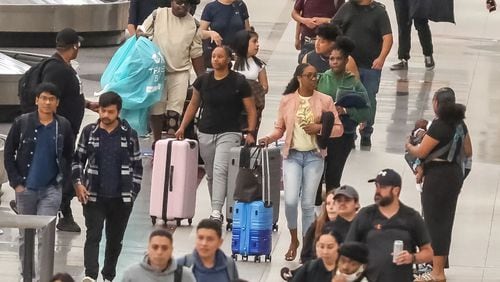
Credit: John Spink

Credit: custom
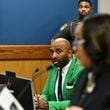
Credit: Steve Schaefer for the AJC
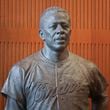
Credit: Jason Getz / [email protected]

How Martin Luther King Jr. Changed His Mind About America
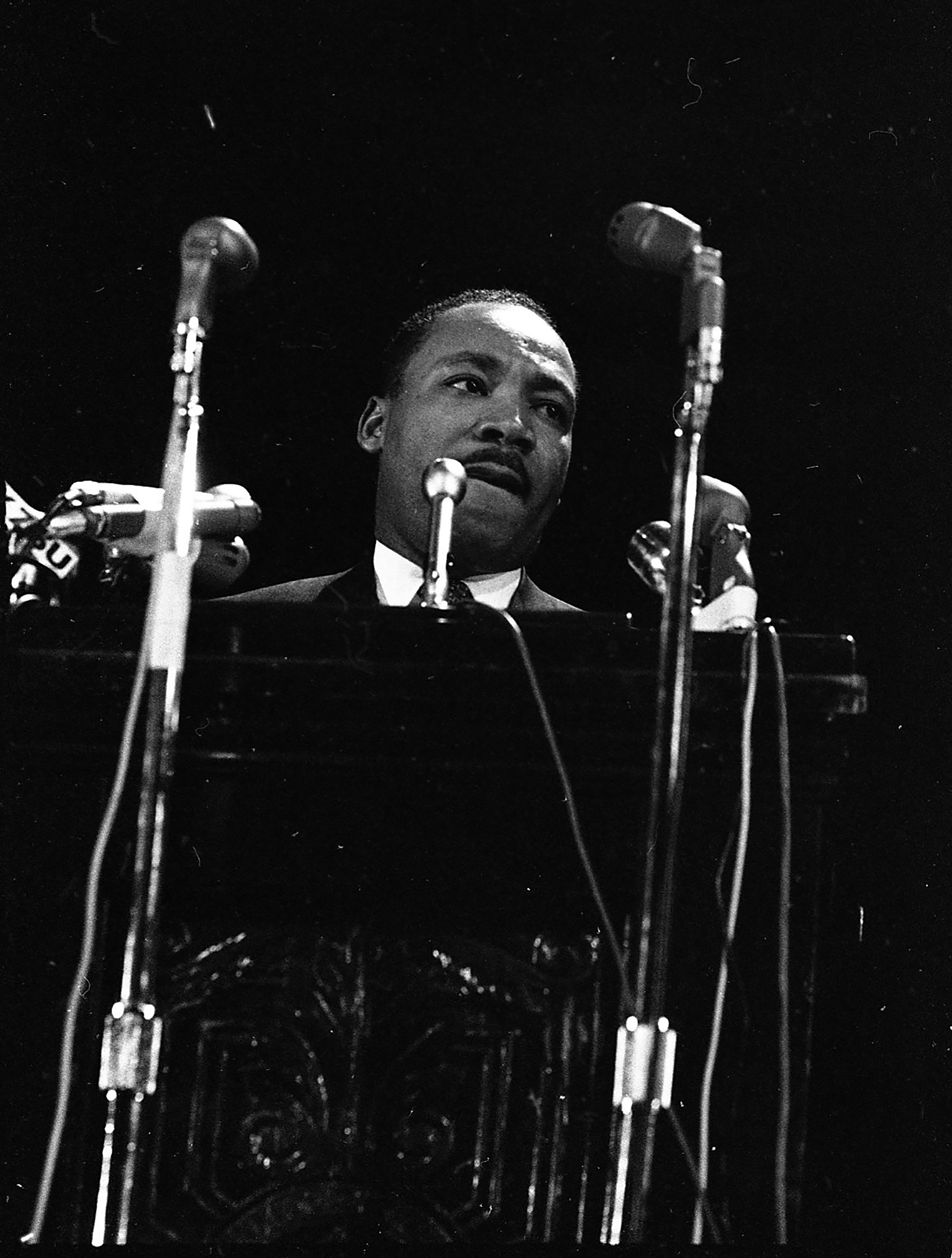
M ore than fifty years after his death, Martin Luther King Jr. remains a towering figure in the history of American civil rights. As with most influential thinkers, there is a certain amount of ambiguity in the public understanding of King and his legacy. White Americans were very skeptical of King while he was alive, but as his reputation and popularity grew, advocates of very different positions tried to claim him for their own. Nowadays conservatives are fond of invoking his most famous speech, 1963’s I Have a Dream , with its vision of a world in where people “will not be judged by the color of their skin but by the content of their character.” Progressives are fonder of The Other America , a more radical speech from 1967, where he said that we may “have to repent in this generation not merely for the vitriolic words of the bad people and the violent actions of the bad people, but for the appalling silence and indifference of the good people who sit around and say ‘wait on time.’”
Those two Kings are ones we know, but there are other Kings we need to listen to as well. The I Have a Dream speech gives us the standard story of America. According to this story, America starts with the Declaration of Independence, which states our foundational values, particularly equality. The Founders’ Constitution turns these values into law—imperfectly at first, but American history is a progress towards redeeming the “promissory note” of the Declaration, and one day we will “live out the true meaning of … ‘all men are created equal.’”
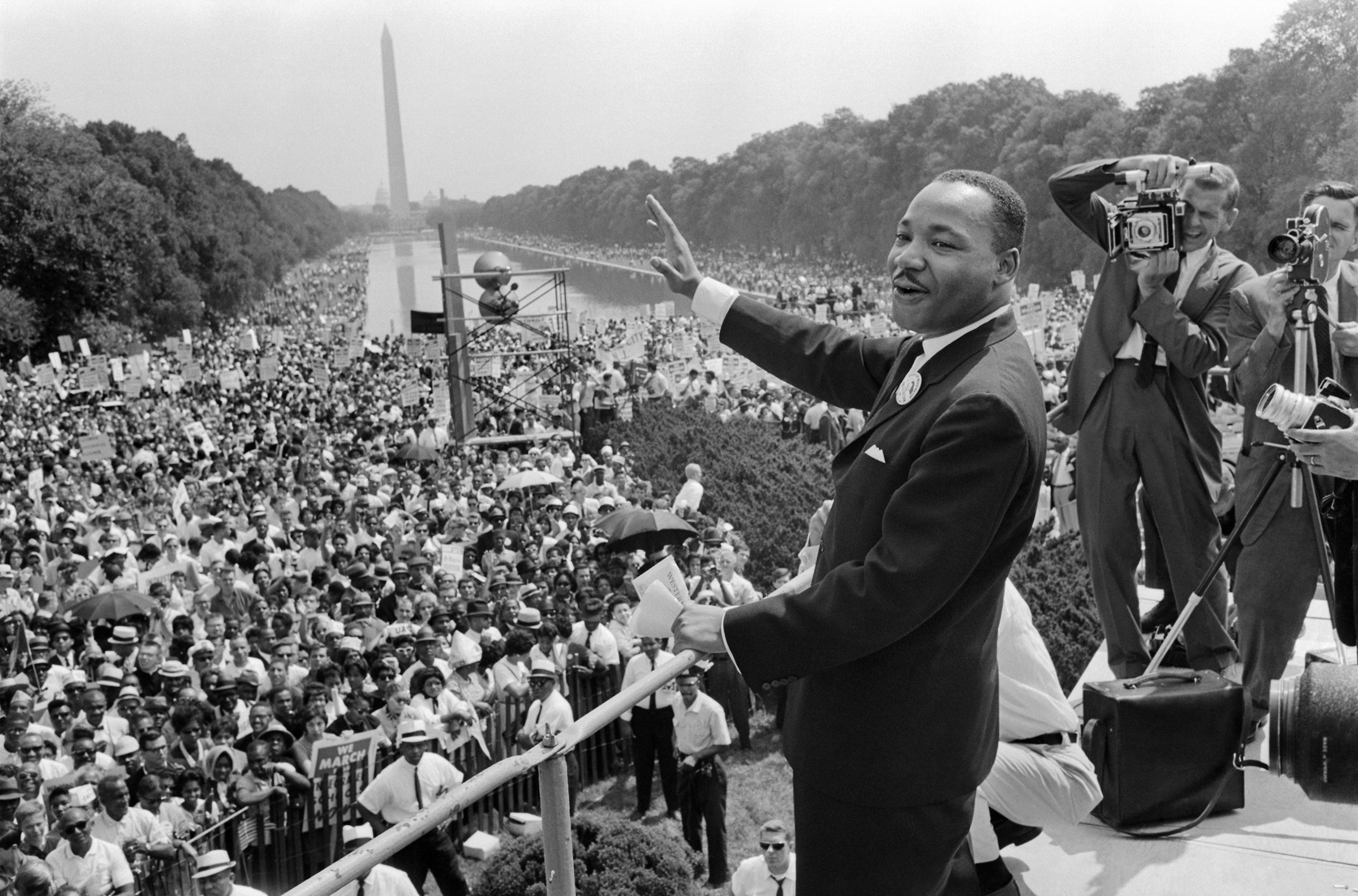
This story is comforting and reassuring, but it is actually a barrier to progress, as the King of The Other America came to see. For one thing, it supports what he called the indifference of the good people, the idea that social progress “rolls in on the wheels of inevitability.” For another, it tells us to look to Founding America and the Declaration of Independence as the source of our fundamental ideals. But doing that tells us that those ideals can co-exist with white supremacy. The truth is that Founding America was not a nation dedicated to our idea of equality. The Betsy Ross flag shows us thirteen stars in a circle, and every star represents a state where slavery was legal.
The idea that the Declaration provides the way forward is deeply problematic. A younger King saw this. As a junior in high school in 1944, competing in a debate contest, he delivered a speech called The Negro and the Constitution . Like I Have a Dream , this speech examined whether the treatment of Blacks in America was consistent with American values. But unlike I Have a Dream , it did not locate those values in the Founding. “America gave its full pledge of freedom seventy-five years ago,” King said: in 1868, when the 14th Amendment was ratified. The Civil War and Reconstruction created a “new order,” he said, “backed by amendments to the national constitution.” It is these amendments, not the Declaration, that promised equality.
Read More: What It Is Was Like Hearing Martin Luther King Jr. Give ‘I Have a Dream’ Speech
The focus on Reconstruction gives us a different origin story. This one tells us our mission is to take up the struggle of a war for liberty and a remaking of society in pursuit of justice and equality. It is less reassuring, which is presumably why King abandoned it in I Have a Dream , seeking to enlist white moderates in his cause. But the allies he won turned out to be the“good people” of The Other America who sat by and counseled patience. And if this story is more divisive, it is also more true. In the Civil War, the U.S. issued an emancipation proclamation—in the Revolution, the British did. In the Reconstruction Constitution, the U.S. banned slavery—in the Founders’ Constitution, they protected it. And it is more inclusive; it locates our values not in documents written by white slaveowners but by those who fought to end slavery, blacks as well as whites.
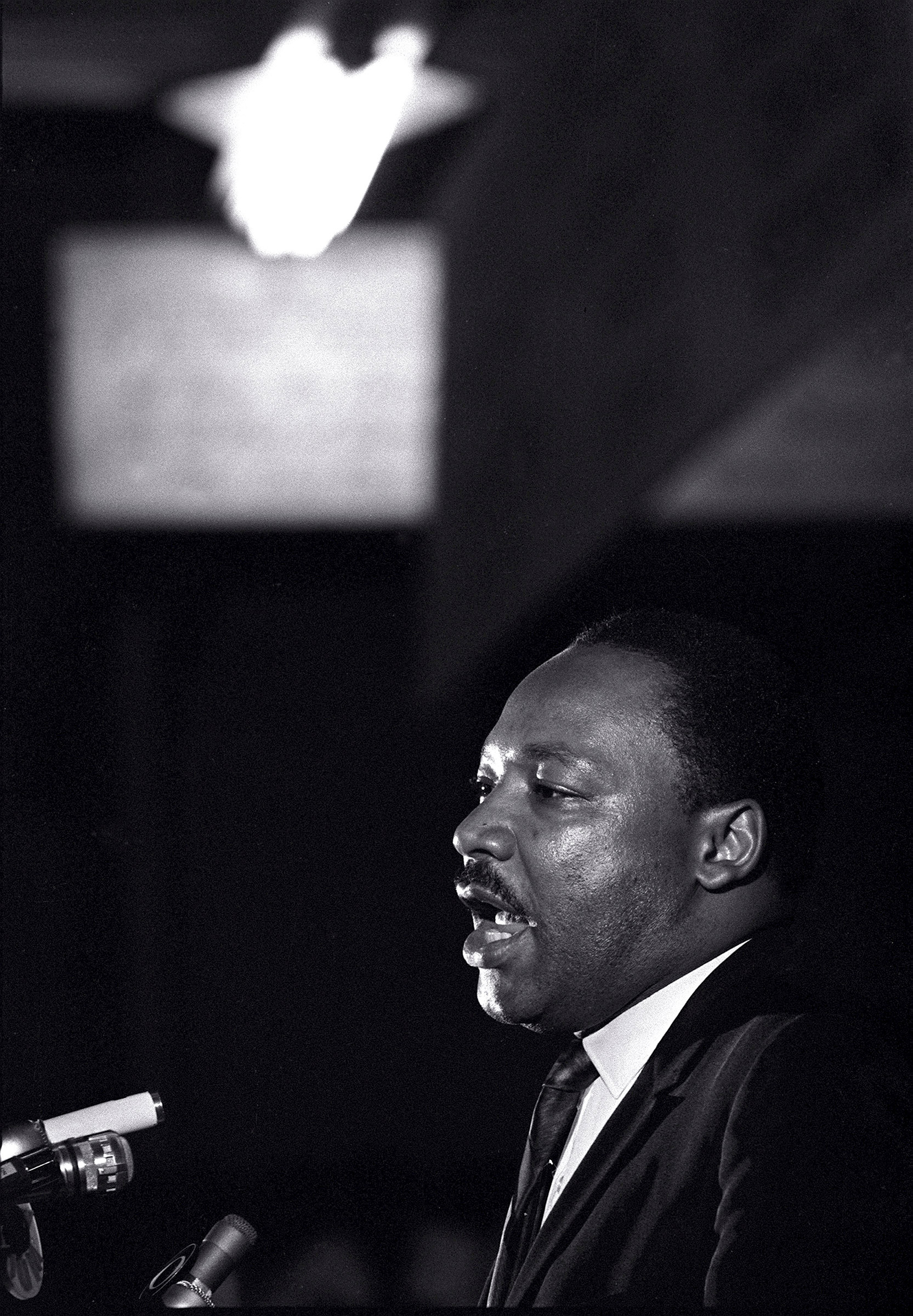
This is a better story. And it is the story that King came back to. The day before his assassination in 1968, he spoke in Memphis, where sanitation workers were striking for decent wages and working conditions . King was ill that night and had asked a friend to speak in his place, but when he heard that hundreds of supporters were waiting to hear him, he went to the Mason Temple, took the stage, and spoke extemporaneously. I’ve Been to the Mountaintop starts by considering the question of what moment in human history King would like to live in. He considers some of the high points of antiquity—classical Greece and Rome, the Renaissance. He ignores the Founding entirely—the first moment of American history that gets a reference is the signing of the Emancipation Proclamation. In the end, King says he would like to live just where he is, because “Something is happening in our world. The masses of people are rising up. And … the cry is always the same: ‘We want to be free.’”
We march for freedom, King told his listeners, and we will win if we stick together. He knew that freedom had a cost. “I may not get there with you.” But “we, as a people, will get to the promised land.” And he sent the audience out into the night with one final spur, invoking the great clash where white and black Americans fought together for the freedom of all. The last line of the last speech that King ever delivered is not from the Declaration or the Constitution. It is from the Civil War; it is the first line of The Battle Hymn of the Republic. Mine eyes have seen the glory of the coming of the Lord.
That is when our America was born, not with the Revolution and the Founding but with the Civil War and Reconstruction. The values we must carry forward are not those of Thomas Jefferson and the Framers of the Constitution; they are the values of Abraham Lincoln and the Reconstruction Congress. It is time for us to see this. It is time for us to join that march.
More Must-Reads from TIME
- Javier Milei’s Radical Plan to Transform Argentina
- The New Face of Doctor Who
- How Private Donors Shape Birth-Control Choices
- What Happens if Trump Is Convicted ? Your Questions, Answered
- The Deadly Digital Frontiers at the Border
- Scientists Are Finding Out Just How Toxic Your Stuff Is
- The 31 Most Anticipated Movies of Summer 2024
- Want Weekly Recs on What to Watch, Read, and More? Sign Up for Worth Your Time
Contact us at [email protected]
The New York Times
The learning network | text to text | ‘i have a dream’ and ‘the lasting power of dr. king’s dream speech’.

Text to Text | ‘I Have a Dream’ and ‘The Lasting Power of Dr. King’s Dream Speech’

American History
Teaching ideas based on New York Times content.
- See all in American History »
- See all lesson plans »
Last summer was the 50th anniversary of the March on Washington, when the Rev. Dr. Martin Luther King, Jr. painted his dream of racial equality and justice for the nation that still resonates with us. “I have a dream,” he proclaimed, “my four little children will one day live in a nation where they will not be judged by the color of their skin but by the content of their character.” In this Text to Text , we pair Dr. King’s pivotal “I Have a Dream” speech with a reflection by the Times literary critic Michiko Kakutani, who explores why this singular speech has such lasting power.
Background: The speech that the Rev. Dr. Martin Luther King Jr. delivered on Aug. 28, 1963, on the steps of the Lincoln Memorial was not the speech he had prepared in his notes and stayed up nearly all night writing.
Dr. King was the closing speaker at the March on Washington for Jobs and Freedom, and the “Dream” speech that inspired a nation and helped galvanize the civil rights movement almost never happened. The march itself almost never happened, as David Brooks writes , because the Urban League, the N.A.A.C.P. and the Southern Christian Leadership Conference either chose to opt out or were focusing their energy elsewhere before the events in Birmingham, Ala., in May 1963, with fire hoses and snapping dogs turned on protesters, helped reignite the call for a national march. The speech almost never happened because Dr. King didn’t think he had time to say all he wanted to say in the five minutes he was allotted — at the end of a long, hot summer day before the crowds were ready to disperse and go home.

But Dr. King was “the son, grandson and great-grandson of Baptist ministers,” Michiko Kakutani writes, and he “was comfortable with the black church’s oral tradition, and he knew how to read his audience and react to it.” In the middle of his speech, the gospel singer Mahalia Jackson urged him from behind the podium, “Tell ’em about the ‘Dream,’ Martin, tell ’em about the ‘Dream’!” She was referring to a riff he had delivered many times before, and in that moment, Dr. King broke from his prepared remarks and shared his transcendent vision for the nation’s future.
Below, we excerpted only the first part of Dr. King’s speech, but students should read the entire speech or this abridged version (PDF). For greater effect, they can listen to the audio or watch the video of Dr. King’s delivery while they read along.
Ms. Kakutani, a Pulitzer Prize-winning literary critic for The Times, reflects on the speech’s lasting power on the 50th anniversary of the March on Washington. We offer an excerpt that introduces her analysis, but we recommend that students read the entire article to explore her evidence for what makes the speech so remarkable.
Key Questions: Why is Martin Luther King’s “I Have a Dream” speech so powerful, even 50 years later?
Activity Sheets: As students read and discuss, they might take notes using one or more of the three graphic organizers (PDFs) we have created for our Text to Text feature:
- Comparing Two or More Texts
- Double-Entry Chart for Close Reading
- Document Analysis Questions
Excerpt 1: From “The Lasting Power of Dr. King’s Dream Speech,” by Michiko Kakutani

It was late in the day and hot, and after a long march and an afternoon of speeches about federal legislation, unemployment and racial and social justice, the Rev. Dr. Martin Luther King Jr. finally stepped to the lectern, in front of the Lincoln Memorial, to address the crowd of 250,000 gathered on the National Mall. He began slowly, with magisterial gravity, talking about what it was to be black in America in 1963 and the “shameful condition” of race relations a hundred years after the Emancipation Proclamation. Unlike many of the day’s previous speakers, he did not talk about particular bills before Congress or the marchers’ demands. Instead, he situated the civil rights movement within the broader landscape of history — time past, present and future — and within the timeless vistas of Scripture. Dr. King was about halfway through his prepared speech when Mahalia Jackson — who earlier that day had delivered a stirring rendition of the spiritual “I Been ’Buked and I Been Scorned” — shouted out to him from the speakers’ stand: “Tell ’em about the ‘Dream,’ Martin, tell ’em about the ‘Dream’!” She was referring to a riff he had delivered on earlier occasions, and Dr. King pushed the text of his remarks to the side and began an extraordinary improvisation on the dream theme that would become one of the most recognizable refrains in the world. With his improvised riff, Dr. King took a leap into history, jumping from prose to poetry, from the podium to the pulpit. His voice arced into an emotional crescendo as he turned from a sobering assessment of current social injustices to a radiant vision of hope — of what America could be. “I have a dream,” he declared, “my four little children will one day live in a nation where they will not be judged by the color of their skin but by the content of their character. I have a dream today!” Many in the crowd that afternoon, 50 years ago on Wednesday, had taken buses and trains from around the country. Many wore hats and their Sunday best — “People then,” the civil rights leader John Lewis would recall, “when they went out for a protest, they dressed up” — and the Red Cross was passing out ice cubes to help alleviate the sweltering August heat. But if people were tired after a long day, they were absolutely electrified by Dr. King. There was reverent silence when he began speaking, and when he started to talk about his dream, they called out, “Amen,” and, “Preach, Dr. King, preach,” offering, in the words of his adviser Clarence B. Jones, “every version of the encouragements you would hear in a Baptist church multiplied by tens of thousands.” You could feel “the passion of the people flowing up to him,” James Baldwin, a skeptic of that day’s March on Washington, later wrote, and in that moment, “it almost seemed that we stood on a height, and could see our inheritance; perhaps we could make the kingdom real.” Dr. King’s speech was not only the heart and emotional cornerstone of the March on Washington, but also a testament to the transformative powers of one man and the magic of his words. Fifty years later, it is a speech that can still move people to tears. Fifty years later, its most famous lines are recited by schoolchildren and sampled by musicians. Fifty years later, the four words “I have a dream” have become shorthand for Dr. King’s commitment to freedom, social justice and nonviolence, inspiring activists from Tiananmen Square to Soweto, Eastern Europe to the West Bank. Why does Dr. King’s “Dream” speech exert such a potent hold on people around the world and across the generations? Part of its resonance resides in Dr. King’s moral imagination. Part of it resides in his masterly oratory and gift for connecting with his audience — be they on the Mall that day in the sun or watching the speech on television or, decades later, viewing it online. And part of it resides in his ability, developed over a lifetime, to convey the urgency of his arguments through language richly layered with biblical and historical meanings….

Excerpt 2: From “I Have a Dream,” by the Rev. Dr. Martin Luther King Jr.
Five score years ago, a great American, in whose symbolic shadow we stand today, signed the Emancipation Proclamation. This momentous decree came as a great beacon light of hope to millions of Negro slaves who had been seared in the flames of withering injustice. It came as a joyous daybreak to end the long night of their captivity. But 100 years later, the Negro still is not free. One hundred years later, the life of the Negro is still sadly crippled by the manacles of segregation and the chains of discrimination. One hundred years later, the Negro lives on a lonely island of poverty in the midst of a vast ocean of material prosperity. One hundred years later, the Negro is still languished in the corners of American society and finds himself an exile in his own land. And so we’ve come here today to dramatize a shameful condition. In a sense we’ve come to our nation’s capital to cash a check. When the architects of our republic wrote the magnificent words of the Constitution and the Declaration of Independence, they were signing a promissory note to which every American was to fall heir. This note was a promise that all men — yes, black men as well as white men — would be guaranteed the unalienable rights of life, liberty and the pursuit of happiness. It is obvious today that America has defaulted on this promissory note insofar as her citizens of color are concerned. Instead of honoring this sacred obligation, America has given the Negro people a bad check, a check that has come back marked “insufficient funds.” But we refuse to believe that the bank of justice is bankrupt. We refuse to believe that there are insufficient funds in the great vaults of opportunity of this nation. And so we’ve come to cash this check, a check that will give us upon demand the riches of freedom and security of justice. We have also come to this hallowed spot to remind America of the fierce urgency of now. This is no time to engage in the luxury of cooling off or to take the tranquilizing drug of gradualism. Now is the time to make real the promises of democracy. Now is the time to rise from the dark and desolate valley of segregation to the sunlit path of racial justice. Now is the time to lift our nation from the quicksands of racial injustice to the solid rock of brotherhood. Now is the time to make justice a reality for all of God’s children….
For Writing or Discussion
- Michiko Kakutani asks: “Why does Dr. King’s ‘Dream’ speech exert such a potent hold on people around the world and across the generations?” What answer does she provide? What is the most powerful evidence she uses to back up her analysis?
- Ms. Kakutani explains that “with his improvised riff, Dr. King took a leap into history, jumping from prose to poetry, from the podium to the pulpit.” What does she mean by that description?
- After reading, listening or watching Dr. King’s “Dream” speech, describe your reaction. What do you find powerful or moving in the speech? Do you have a favorite line or phrase? Explain.
- How does Dr. King use figurative language and other poetic and oratorical devices, such as repetition and theme, to make his speech more powerful?
- What historical and biblical allusions do you recognize within the speech? Which allusions do you find most compelling, and why?
- Have we achieved Dr. King’s dream 50 years later? What progress do you think this country has made since the March on Washington with regard to civil rights? What progress do we still need to make? Cite evidence to support your opinion.

Going Further
1. Witnesses to History: How did people at the time react — to Dr. King’s “Dream” speech as well as to the march as a whole? The Times gathered reflections from readers who attended the march . Choose one or two memories to read in the Interactive. What was most powerful about the march for them? What was their recollection of Dr. King’s speech?
Alternatively, read James Reston’s 1963 news analysis published the day after the march in The Times to understand one contemporary critic’s perspective. Mr. Reston writes:
It was Dr. King who, near the end of the day, touched the vast audience…. But Dr. King brought them alive in the late afternoon with a peroration that was an anguished echo from all the old American reformers. Roger Williams calling for religious liberty. Sam Adams calling for political liberty, old man Thoreau denouncing coercion, William Lloyd Garrison demanding emancipation, and Eugene V. Debs crying for economic equality — Dr. King echoed them all. “I have a dream,” he cried again and again. And each time the dream was a promise out of our ancient articles of faith: phrases from the Constitution. lines from the great anthem of the nation, guarantees from the Bill of Rights, all ending with a vision that they all one day might come true.
How does Mr. Reston view the “Dream” speech? What additional insights does this news analysis give you about how The Times, or the mainstream news media in general, might have viewed the event at the time?
2. Other Civil Rights Speeches: Dr. King’s “Dream” speech is the best known of a long line of civil rights speeches. The Times collected other speeches that have influenced perceptions of race in America, including Malcolm X’s “The Ballot or the Bullet” and Fannie Lou Hamer’s testimony at the 1964 Democratic National Convention. Choose one speech and compare it to “I Have a Dream” in both tone and message.
3. Nonviolent Resistance: Dr. King’s speech was grounded in a larger movement committed to nonviolent resistance. Read the Times columnist David Brooks’s “The Ideas Behind the March,” and then consider the following questions:
- Mr. Brooks writes: “Nonviolent coercion was an ironic form of aggression. Nonviolence furnished the movement with a series of tactics that allowed it to remain on permanent offense.” What does he mean by that? How does this analysis help explain why nonviolence is often so effective?
- What current issue do you think would be well served by a nonviolent reform movement like the civil rights movement? Why is this issue important to you, and what actions would you want such a movement to take to make change?
4. Assessing the Dream: Daniel R. Smith attended both the March on Washington in 1963 and the 50th anniversary commemoration last August. Five decades after Dr. King’s historic speech, Mr. Smith reflected on how much progress the nation has made in terms of civil rights, but he also wondered if “the pace has slowed considerably.” Read “50 Years After March, Views of Fitful Progress” and study the related graphic analyzing change over time in key areas like education and jobs. How much progress do you think the country has made in civil rights since 1963? How much progress do we still need to make? Cite evidence to support your opinion.
More Resources:
Celebrating M.L.K. Day — news articles, Opinion articles, multimedia and lesson plans related to Dr. King and the civil rights movement
Additional Lesson Plans — by the Gilder Lehrman Institute and PBS for middle school and high school students
This resource may be used to address the academic standards listed below.
Common Core E.L.A. Anchor Standards
1 Read closely to determine what the text says explicitly and to make logical inferences from it; cite specific textual evidence when writing or speaking to support conclusions drawn from the text.
2 Determine central ideas or themes of a text and analyze their development; summarize the key supporting details and ideas.
4 Interpret words and phrases as they are used in a text, including determining technical, connotative, and figurative meanings, and analyze how specific word choices shape meaning or tone.
5 Analyze the structure of texts, including how specific sentences, paragraphs, and larger portions of the text (e.g., a section, chapter, scene, or stanza) relate to each other and the whole.
Comments are no longer being accepted.
Another fantastic lesson plan. I teach AP English Language and Composition. King’s writings are an essential part of the curriculum; these ideas will be great springboards for discussion. Thank you!
James Mulhern, //www.synthesizingeducation.net Atlantic Technical Center Magnet High School Coconut Creek, Florida
Remarkable Rev, Dr Martin Luther King, an exemplary and epitome of peace movement, who has shown extreme rationality in pursuit of justice, equality and freedom without any violence, taught us how to live a life with a high plane of dignity and prosperity, a life of liberty and equality, a life of complete unanimity and harmony in regard with racism. He taught us the real meaning of revolution……. revolution forwarded to bring the bright and sparkling light of hope of peace and tranquillity. His philosophies, ideologies and of course his dream for AMERICANS reflect his heart which is replete with abundance of humanity, compassion, fraternity and brotherhood. Yes, I have a dream and the dream is to live your dream.
Martin Luther King Jr. had the most memorable speak ever in the history of time. Something new that I have learned about Dr. King’s speech is that it was not the one he had prepared for the event. It amazes me that he still managed to say such a magnificent speak and it was not the one he was preparing for it just happened. I think Martin Luther King Jr. speech of “I Have a Dream” is still so powerful till this day is because it was something he was fighting for, for everybody and it was something that was so unique to everybody to hear it was wonderful. The main reason for the speech is for everyone to see that we are equal and for the future to be better than how it was, it just needed to be different. Many people loved the speech that he did but then again there were also others who disliked for the meaning it was about. The people who did not like it probably did not like it because they wanted it to stay the same and were probably taught to hate on others for a reason. Martin to me was a very unique man for doing what he did but there were also others who did the same thing and stood up for what they believed in. Everyone including Martin made others realize what was going on and things needed to be different. So it gave others confidence to do something towards a situation that they may not like and to say something about. The speech was a very peaceful way to say what the problem of the situation was it was not a violent thing to do but it was also dangerous. He did not care that if some were hating on him because of the speech or what he was doing, he must have been proud for what he was doing, I now I would be proud. This speech will always be around and very memorable till this day and till the future.
What's Next
- Share full article
Advertisement
Supported by
‘I Have a Dream,’ Yesterday and Today
At the March on Washington, where thousands gathered on Saturday to renew the call for equality, participants reflected on Martin Luther King’s historic speech and its themes in the present.

By Darren Sands
Reporting from Washington
Sixty years after the March on Washington and Martin Luther King’s “I Have a Dream” speech galvanized supporters of the Civil Rights Movement with an anthemic call to action, several thousand people gathered on the National Mall on Saturday to remind the nation of its unfinished work on equality.
Many who turned out, some having also attended the 1963 March on Washington for Jobs and Freedom, traveled from across the country to recall a searing moment in American history that propelled, in the words of one speaker, “the struggle of a lifetime.” The event was convened by the Rev. Al Sharpton and by Martin Luther King III, the son of Martin Luther King Jr. and Coretta Scott King, and was attended by dignitaries including Andrew Young, the former United Nations ambassador and mayor of Atlanta, and the U.S. Representative Hank Johnson of Georgia.
Hovering above all the proceedings, though, were the words delivered by Dr. King six decades ago in front of the Lincoln Memorial, when he took the measure of society a century after slavery was abolished and lamented how Black Americans were “still sadly crippled by the manacles of segregation and the chains of discrimination.”
Though the speech gained renown for its rousing, aspirational coda, other segments decried facets of racial inequality that still resonated with Saturday’s participants. Several attendees who were interviewed — some of them commented on specific excerpts, while others expressed thoughts on Dr. King’s words in general — reflected on the echoes, and the nation, from today’s perspective. Their quotes have been edited for length and clarity.
Martin Luther King on law enforcement
“There are those who are asking the devotees of civil rights, ‘When will you be satisfied?’ We can never be satisfied as long as the Negro is the victim of the unspeakable horrors of police brutality. We can never be satisfied as long as our bodies, heavy with the fatigue of travel, cannot gain lodging in the motels of the highways and the hotels of the cities.”
Jacquealin Yeadon, organizer, National Action Network, Moncks Corner, S.C.
“Police brutality hasn’t gone anywhere — in fact, we deal with it all the time. People dying in jail, in police custody. We’ve got stories upon stories upon stories — of the same thing.”
King on voting rights
“We cannot be satisfied as long as a Negro in Mississippi cannot vote and a Negro in New York believes he has nothing for which to vote.”
Talina Massey, community organizer, entrepreneur, New Bern, N.C.
“This is what’s called voter suppression. Especially in the South with these methods of suppression that make it harder for citizens to vote. This is why we’ve got to keep swinging and not giving up until the fight is won.”
King on justice
But we refuse to believe that the bank of justice is bankrupt. We refuse to believe that there are insufficient funds in the great vaults of opportunity of this nation. And so we’ve come to cash this check, a check that will give us upon demand the riches of freedom and the security of justice.
Grady Smith, retiree, Atlanta
“I came here today because I’ve been a civil rights worker. And we’re here with a lot of civil rights workers and leaders, because we had supported the effort that Martin Luther King put forth years ago about voting rights, equality. We’re still not there. That’s why I’m here.”
King on urgency
“Now is the time to make real the promises of democracy. Now is the time to rise from the dark and desolate valley of segregation to the sunlit path of racial justice. Now is the time to lift our nation from the quicksands of racial injustice to the solid rock of brotherhood. Now is the time to make justice a reality for all of God’s children.”
Nancy Hoover, pediatric nurse practitioner, Damascus, Md.
“I was a freshman in high school in New York when I heard the speech. I wasn’t here, which would have been phenomenal. But now I am. And I feel there’s not been enough progress. It’s like, ‘Come on world, let’s get going. What are we waiting for?’”
King on his dream
“This is our hope. This is the faith that I go back to the South with. With this faith, we will be able to hew out of the mountain of despair a stone of hope. With this faith we will be able to transform the jangling discords of our nation into a beautiful symphony of brotherhood. With this faith we will be able to work together, to pray together, to struggle together, to go to jail together, to stand up for freedom together, knowing that we will be free one day."
Alfonso R. Bernard Sr., New York City, founder, chief executive and pastor, Christian Cultural Center
“He spoke of a dream, an American dream. And here we are 60 years later. Blacks have experienced unprecedented wealth, education. We have more Blacks in positions of power than we have had at any time in the history of America, have an increasing number of Black millionaires. With all that said, we still have the highest rate of poverty. We still have racial disparities in our justice system, policing systems, educational system, health care system and economic opportunity. We still have a long way to go.”
University Library Library Catalogue Plus
Throughout Seven Elements of Communication of Language on Martin Luther King’s Speech: A Discourse Analysis
Throughout the 17th to 18th centuries, slavery was practiced throughout the European colonies of America. Until the passage of the 13th Amendment to the United States Constitution in 1865, slavery in the United States was legal. Under the law, enslaved people are treated as property and can be bough...
Full description
- Description
© 2017 Loughborough University. All rights reserved.

IMAGES
COMMENTS
Mr. Biden, who has a bust of Dr. Martin Luther King Jr. in the Oval Office — and who is old enough to have shared his memories of Dr. King's assassination in his speech — walked into ...
August 28, 1963. Martin Luther King's famous "I Have a Dream" speech, delivered at the 28 August 1963 March on Washington for Jobs and Freedom, synthesized portions of his previous sermons and speeches, with selected statements by other prominent public figures. King had been drawing on material he used in the "I Have a Dream" speech ...
It was late in the day and hot, and after a long march and an afternoon of speeches about federal legislation, unemployment and racial and social justice, the Rev. Dr. Martin Luther King Jr ...
ATLANTA — President Joe Biden delivered a speech during ... and he was my hero -- a Baptist minister, a Morehouse man, Dr. Martin Luther King -- in April of my law school graduation year, he was ...
"Beyond Vietnam: A Time to Break Silence", also referred as the Riverside Church speech, is an anti-Vietnam War and pro-social justice speech delivered by Martin Luther King Jr. on April 4, 1967, exactly one year before he was assassinated.The major speech at Riverside Church in New York City, followed several interviews and several other public speeches in which King came out against the ...
Civil rights leader Martin Luther King Jr. addresses the crowd at the Lincoln Memorial in Washington, D.C., where he gave his "I Have a Dream" speech on Aug. 28, 1963, as part of the March on ...
In this video, we delve into the profound impact of Dr. Martin Luther King Jr.'s iconic "I Have a Dream" speech, delivered on August 28, 1963, during the Mar...
I Have a Dream, August 28, 1963, Educational Radio Network [1] " I Have a Dream " is a public speech that was delivered by American civil rights activist and Baptist minister [2] Martin Luther King Jr. during the March on Washington for Jobs and Freedom on August 28, 1963. In the speech, King called for civil and economic rights and an end to ...
Martin Luther King, Jr. A. Philip Randolph. I Have a Dream, speech by Martin Luther King, Jr., that was delivered on August 28, 1963, during the March on Washington. A call for equality and freedom, it became one of the defining moments of the civil rights movement and one of the most iconic speeches in American history. March on Washington.
With those words, Civil Rights icon Dr. Martin Luther King Jr. began the baccalaureate address on the campus of Keuka College on June 16, 1963. Long thought lost to the ages, a reel-to-reel recording of this historic address was recently returned to Keuka College by a former employee. The approximately 35-minute speech has now been digitally ...
For years, Rocky Mount citizens have told tales about hearing the first rendition of Martin Luther King Jr.'s "I Have a Dream" speech. On Nov. 27, 1962, nine months before the refrain echoed across the National Mall during the March on Washington, King's words rang out in the gymnasium of a segregated high school in the small North ...
Monday will mark the holiday in honor of Rev. Martin Luther King Jr. and Texas A&M University Professor of Communication Leroy Dorsey is reflecting on King's celebrated "I Have a Dream" speech, one which he said is a masterful use of rhetorical traditions. King delivered the famous speech as he stood before a crowd of 250,000 people in ...
Among the different personalitieswho combatted racial inequalityin America, the name of MartinLuther King stands out. He waseven entitled man of the yearby Time magazine in 1963. Tes Sorensen ...
The "I Have a Dream" speech, delivered by Martin Luther King, Jr. before a crowd of some 250,000 people at the 1963 March on Washington, remains one of the most famous speeches in history.
Serving Madisonville and Hopkins County, KY. Since 1917 270-824-3300
On August 28, 1963, Martin Luther King, Jr., took the podium at the March on Washington and addressed the gathered crowd, which numbered 200,000 people or more. His speech became famous for its recurring phrase "I have a dream.". He imagined a future in which "the sons of former slaves and the sons of former slave owners" could "sit down ...
Dr. Martin Luther King, Jr. addresses crowds during the March On Washington on August 28, 1963 at the Lincoln Memorial in Washington D.C. It was here where he gave his famous "I Have A Dream" speech.
King had just received the 1964 Nobel Peace Prize for his non-violent struggle for civil rights. Terkel asks Dr. King what the origins of his famous I Have a Dream Speech were. Dr. King replied that it had always been his dream to see the end of racial segregation since he was young. He talks about the influence of his father on this viewpoint ...
Martin Luther King, Jr.'s iconic speech, annotated with relevant scholarship on the literary, political, and religious roots of his words. Dr Martin Luther King Jr waves to the crowd gathered on the Mall after delivering his "I Have a Dream" speech at the March on Washington, August 28th, 1963. Getty. By: Liz Tracey. February 28, 2022. 7 ...
Monday marks the seventy-eighth birthday of Dr. Martin Luther King, Jr., the civil rights hero who was gunned down in Memphis in April 1968 at the age of 39. ... more in line with the social thought of mid-twentieth-century conservatives. Little wonder that, in his first major speech as a civil rights leader, King told a gathering of black bus ...
He also said having Biden speak goes totally against what the college stands for. "This is the home of Martin Luther King," Pettus said. "We're inviting a war criminal to come to speak to ...
Dr. Martin Luther King Jr. delivers his "The Other America" speech at Stanford University in California, on April 14, 1967. Jerry Telfer—San Francisco Chronicle/Getty Images
Background: The speech that the Rev. Dr. Martin Luther King Jr. delivered on Aug. 28, 1963, on the steps of the Lincoln Memorial was not the speech he had prepared in his notes and stayed up nearly all night writing. Dr. King was the closing speaker at the March on Washington for Jobs and Freedom, and the "Dream" speech that inspired a nation and helped galvanize the civil rights movement ...
January 15, 1929 - April 4, 1968. Martin Luther King Jr., an American clergyman and civil rights activist, was one of the most important moral voices of the civil rights movement, a champion of equal rights and desegregation, and an advocate of nonviolent civil disobedience. Born on January 15, 1929 in Atlanta, Georgia, he played a pivotal role ...
"Speaking up in a constructive way has been the model of Morehouse protest as long as the school has been minting new leaders, and certainly since the 1950s, when Martin Luther King came on the ...
Summarize This Article. Martin Luther King, Jr. (born January 15, 1929, Atlanta, Georgia, U.S.—died April 4, 1968, Memphis, Tennessee) was a Baptist minister and social activist who led the civil rights movement in the United States from the mid-1950s until his death by assassination in 1968.
Reporting from Washington. Aug. 26, 2023. Sixty years after the March on Washington and Martin Luther King's "I Have a Dream" speech galvanized supporters of the Civil Rights Movement with ...
The whole world then remembered the "I Have a Dream" speech as Martin Luther King's personal vision that had a huge impact on many people, the topic is I Have a Dream, the code is American English and the setting is on August 28, 1963 at the Lincoln Memorial, Washington DC. Solemn and calm. ISSN: 2721-1096 2721-1916
US President Joe Biden speaks Sunday at the former university of civil rights icon Martin Luther King, Jr, in a bid to woo Black voters that risks being overshadowed by
Martin Luther King Jr.'s "I Have a Dream " speech exhibits an " integrative " rhetorical style that mirrors and maintains King's call for a racially integrated. America. Employing the theoretical concepts of voice merging , dynamic spectacle , and the prophetic voice , this essay examines how text and context converge to.